2026 Fiat Grande Panda BEV review
The Fiat Panda is one of the pillars of urban mobility in the Mediterranean. For decades it was the cheapest way for families to move around cities and experience the freedom of personal transportation. It's also been an honest companion for drivers and passengers with almost no frills inside, but a quirky practical cabin. And the 4x4 version has a bit of a cult following for its off-roading capabilities.
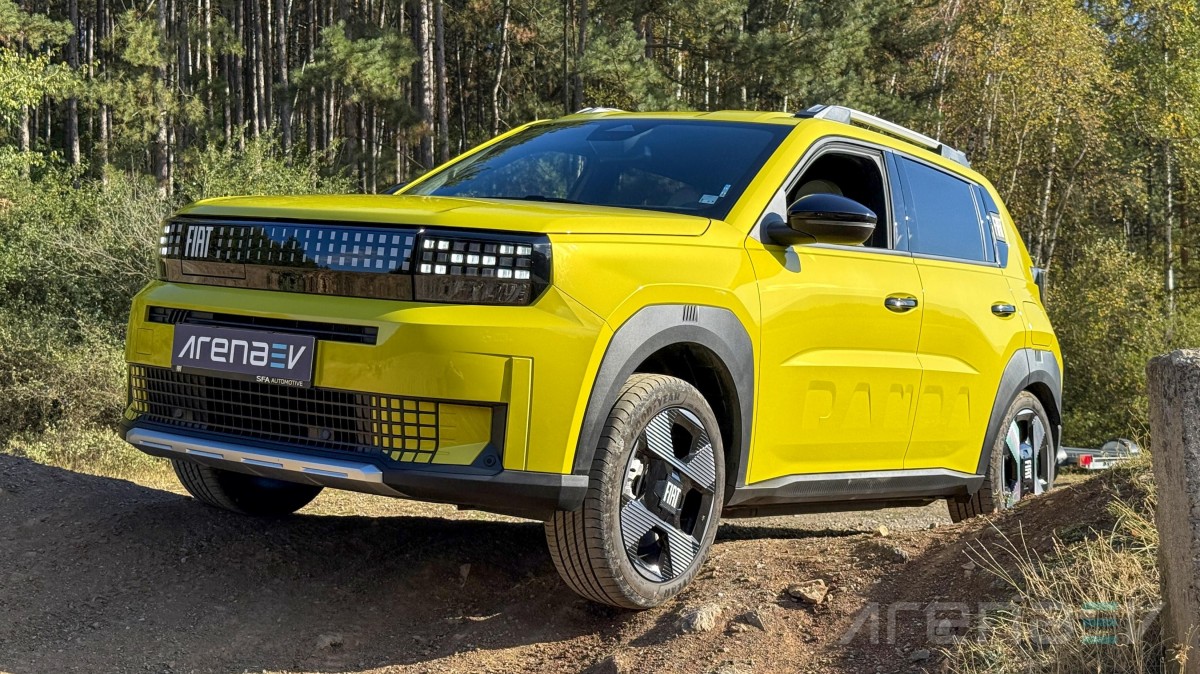
Table of Contents:
- Exterior
- Interior
- Storage & practicalities
- Driving experience
- Ride comfort
- Tech features
- Cabin noise
- Acceleration and braking
- Consumption
- Charging speed
- Competition
- Verdict
And while the Panda is still an ICE-only model, Fiat recently introduced the Grande Panda, available as an ICE, hybrid and fully electric models. It is a slightly bigger vehicle with vastly different styling that however aims to deliver the same kind of excellent value for money and quirkiness.
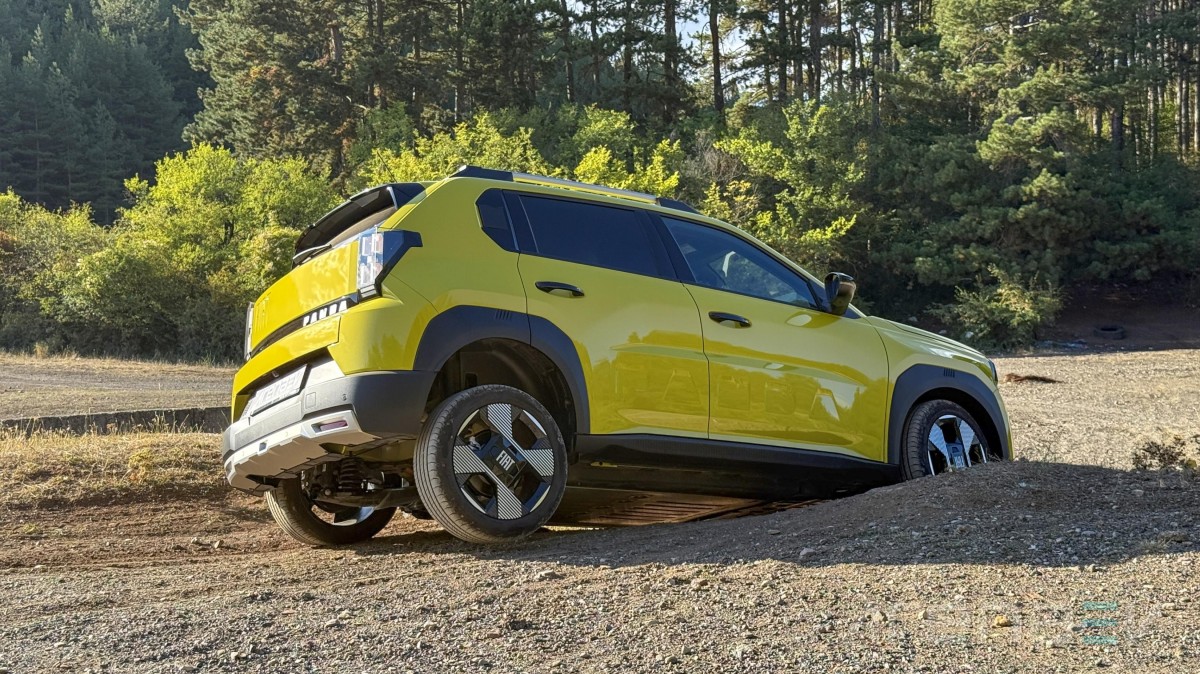
Today, we are testing the electric version of the Fiat Grande Panda. It comes with a 44 kWh battery pack and it outputs 113 hp with 90 lb-ft of torque to the front wheels. A 4x4 version is out of the question for this generation as it will simply push the price too high up and will kill the range.
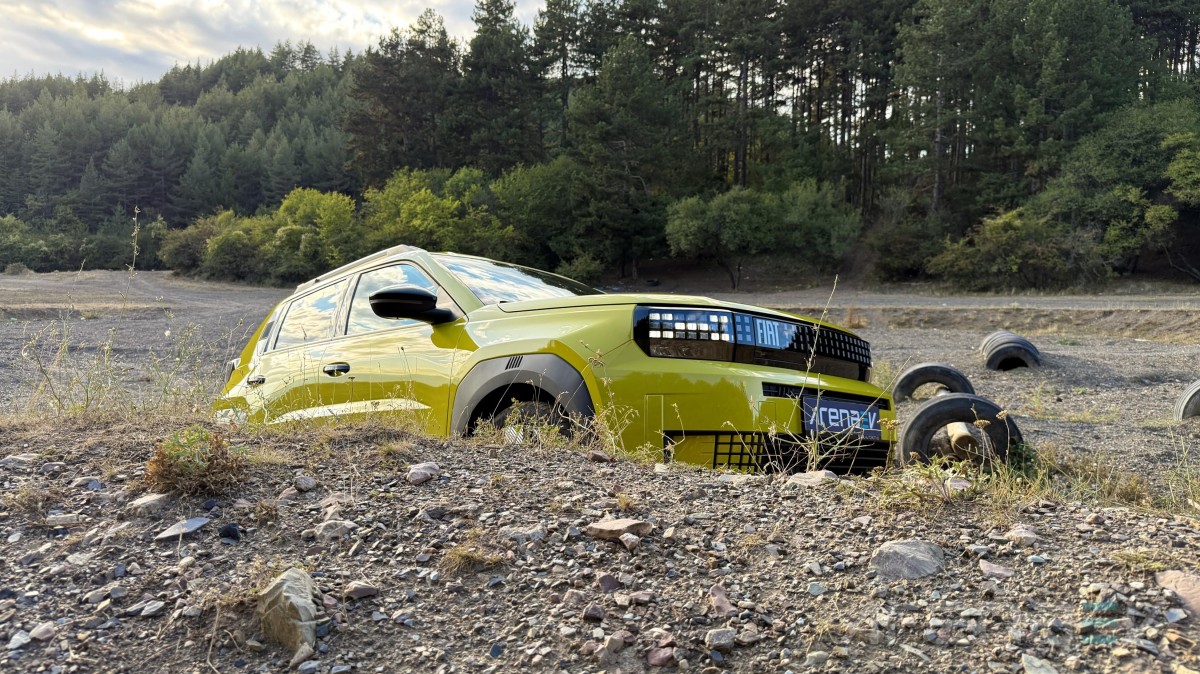
- Dimensions: 157.4 inches x 69.4 inches x 61.8 inches, 100 inches wheelbase.
- Drivetrain tested: 44 kWh - FWD 83 kW (113 hp), 90 lb-ft, 44 kWh total battery capacity, 43.8 kWh useable battery capacity
- Charging: 100 kW CCS
- Range: 199 miles WLTP
- Weight: 3,331 lb unladen, 4,365 lb gross
- Other features: OTA updates.
Exterior
The original 80’s Fiat Panda is a boxy hatchback, designed for practicality rather than looks. It was small, easy to move around and cheap, which caused its great success. Now, the Fiat Grande Panda tries to to follow the same path and comes with a healthy dose a 80’s styling that ties back to the original.
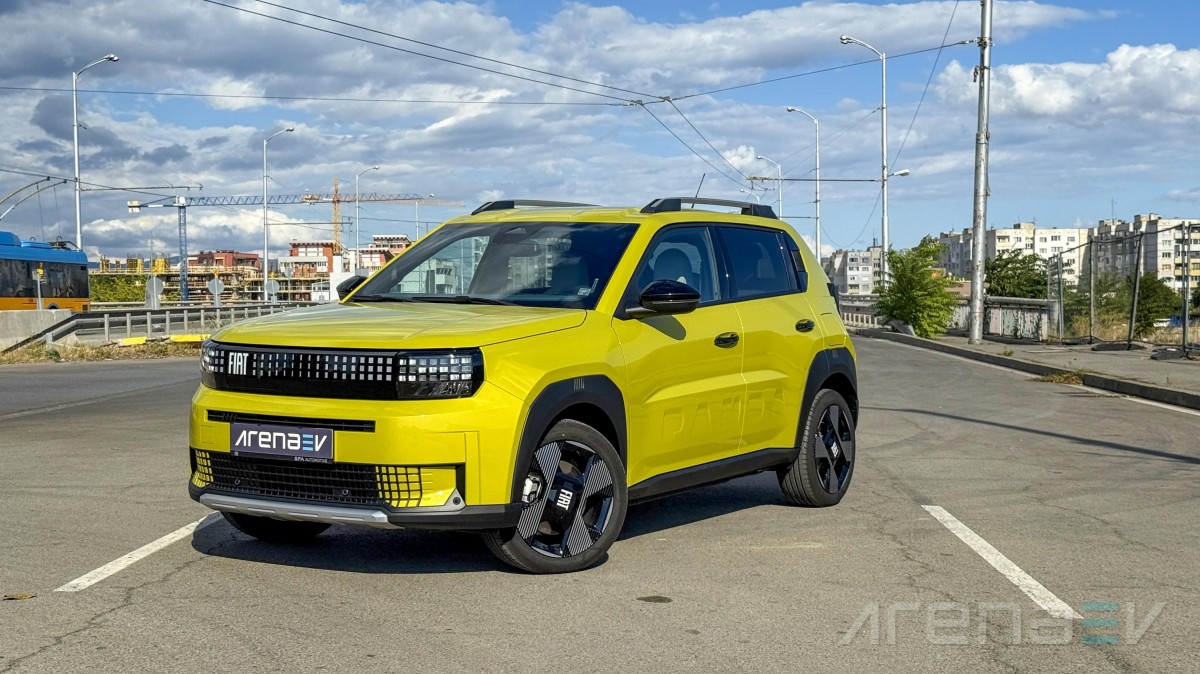
Never mind the name, the Fiat Grande Panda is still a small car and the design once again aims to maximize usability. There are a number of references to the original around the exterior, yet they are subtle and don’t impact the overall practicality of the car.
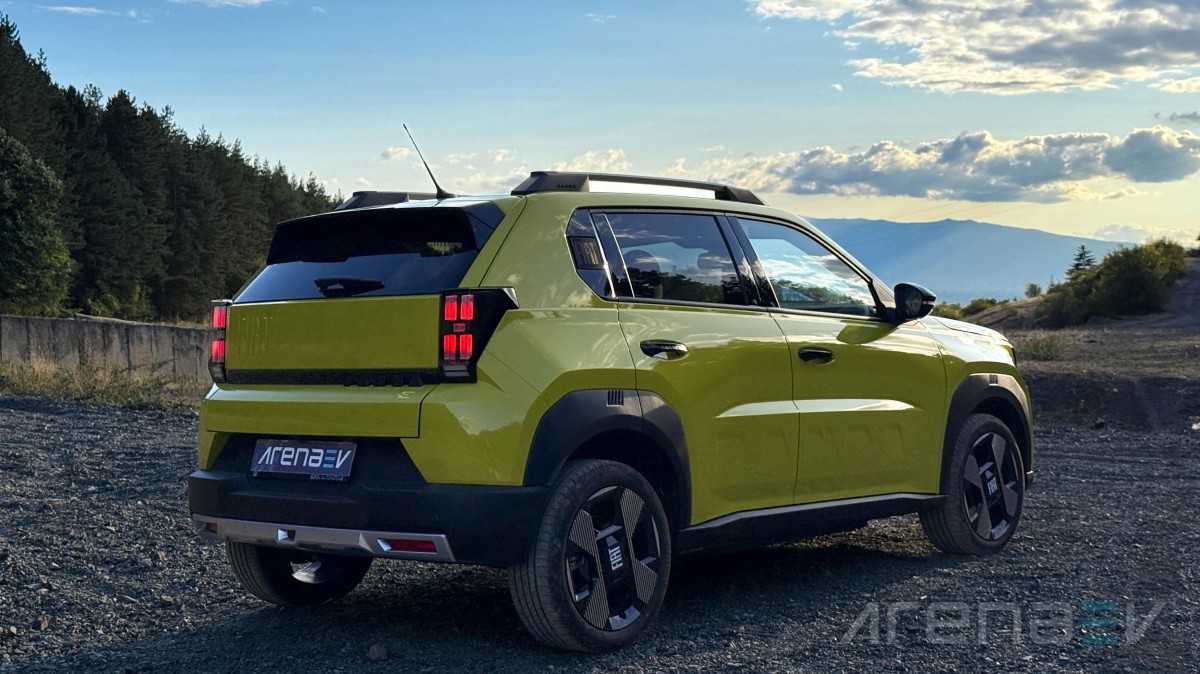
Up front, the Fiat Grande Panda shows a brawny face with an upright bumper and lots of vent openings on the lower side. A thick black lining connects the headlights, which light up in a pixelated pattern. This creates both a recognizable light signature, and could easily be interpreted as a throback to the low-res graphics of the 80s.
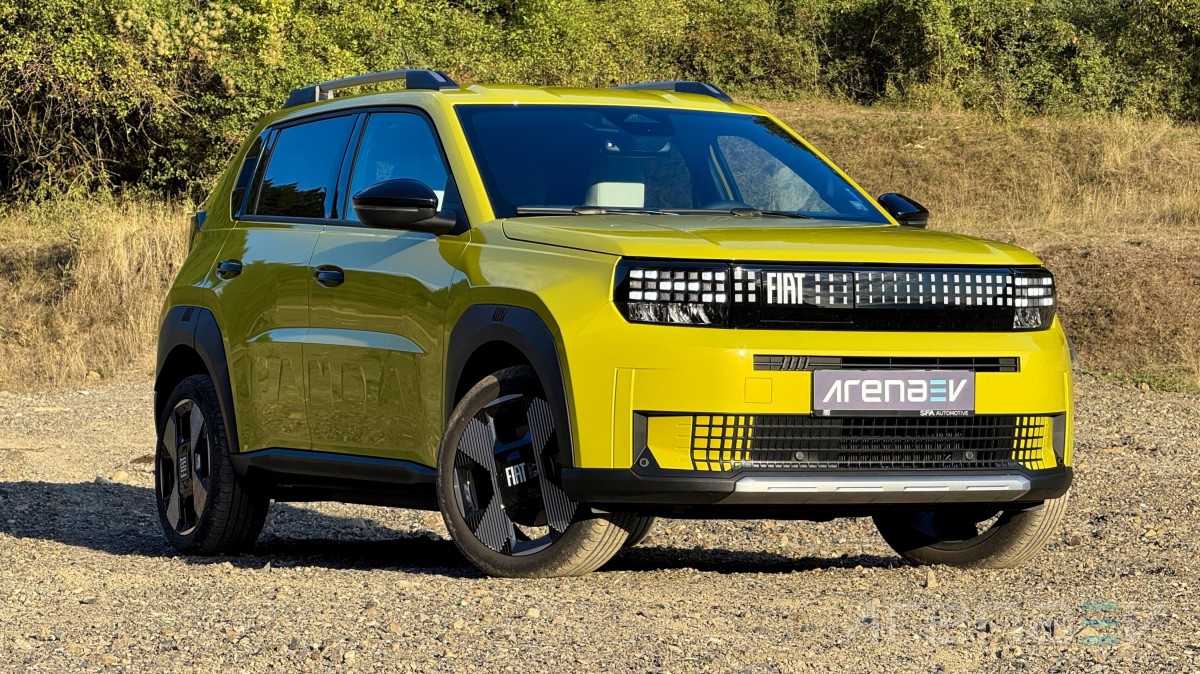
Above the license plate there is a thin stripe for additional cooling, though we doubt it was really neded on the EV model. On its left side, you can see the old-school Fiat logo with the four slats that hasn’t been used in years. This piece of nostalgia can be found in several spots around the Grande Panda. It is always placed subtly and Fiat doesn’t accentuate it much.
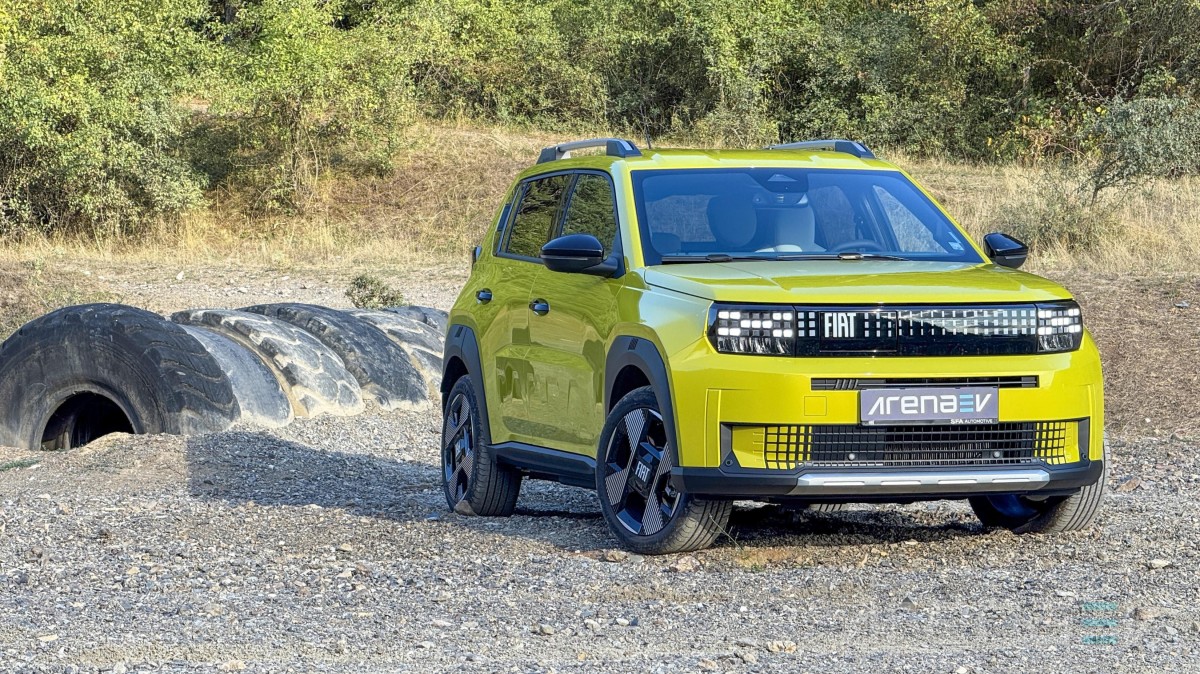
The black line between the headlights doesn’t only serve as decoration but also incorporates the built-in charging cable. You press on the giant FIAT script and a hole opens, from where you can pull a charging cable and plug it directly into a charger. This clever solution eliminates the need to carry your charging cables somewhere in the trunk and is a genius solution that will undoubtedly be followed by other manufacturers.
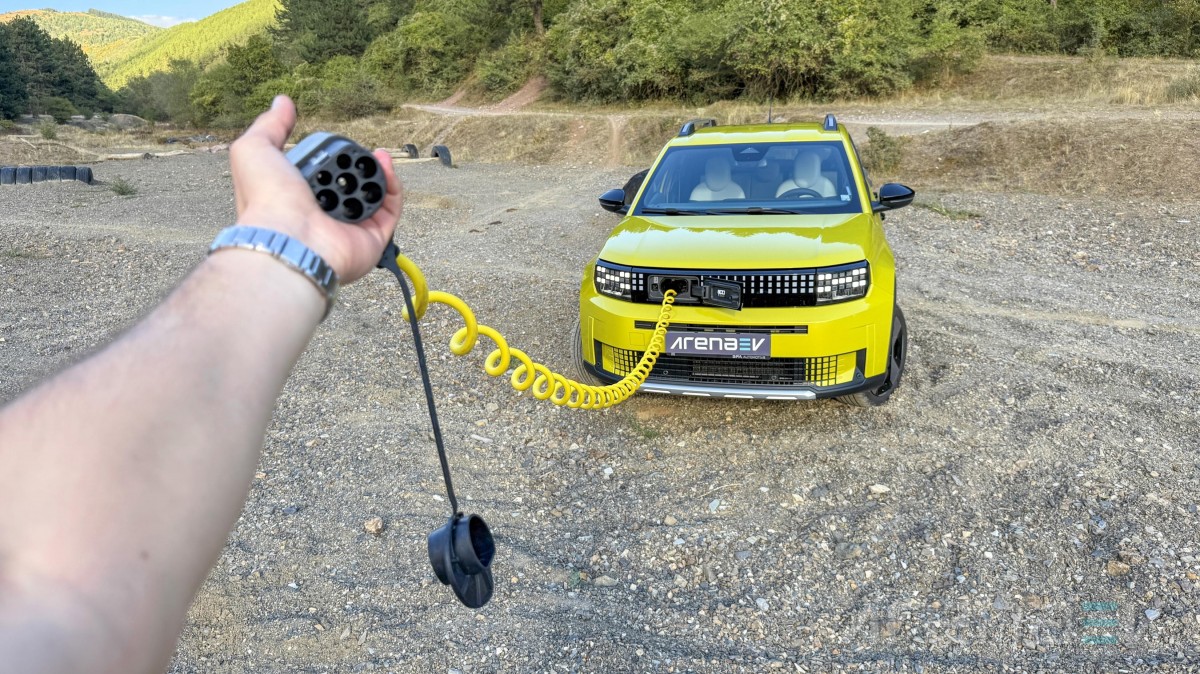
From the side, the Fiat Grande Panda cannot be mistaken for anything else as it has a huge PANDA script dented into the doors. The shape is undeniably derived from the original Panda with multiple edges and a boxy hatchback design.
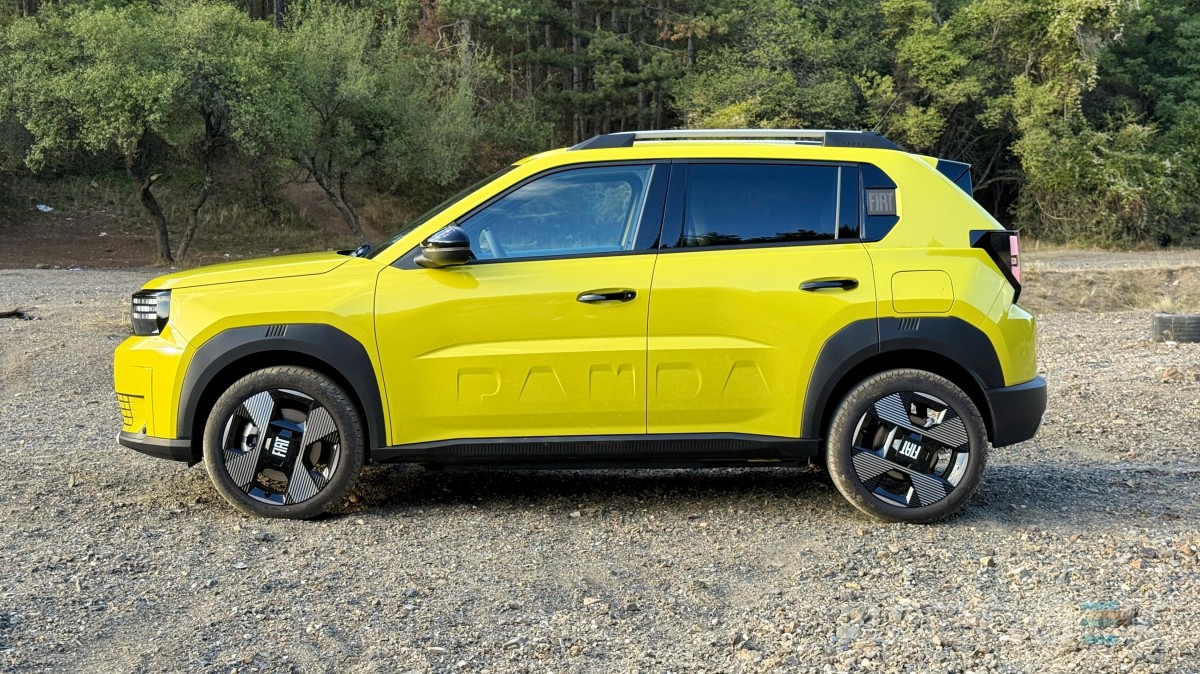
The door handles are black and stand out against the yellow doors. Sadly, there is no option for keyless entry or even keyless start, which is rather disappointing on a car nowadays.
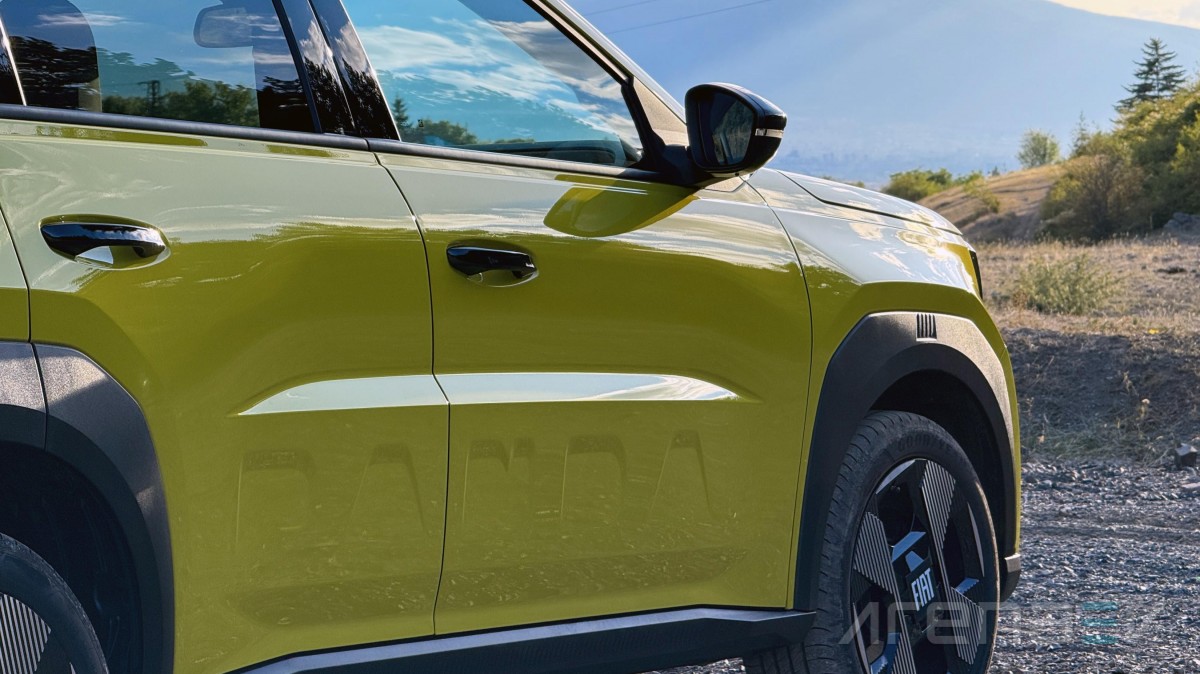
The four-spoke 17-inch alloy wheels feature a unique pattern. There are a few different designs available, with the lower trims even coming with steelies. The tires of our test model were Goodyear Efficient Grip Performance 2, which suited the car perfectly.
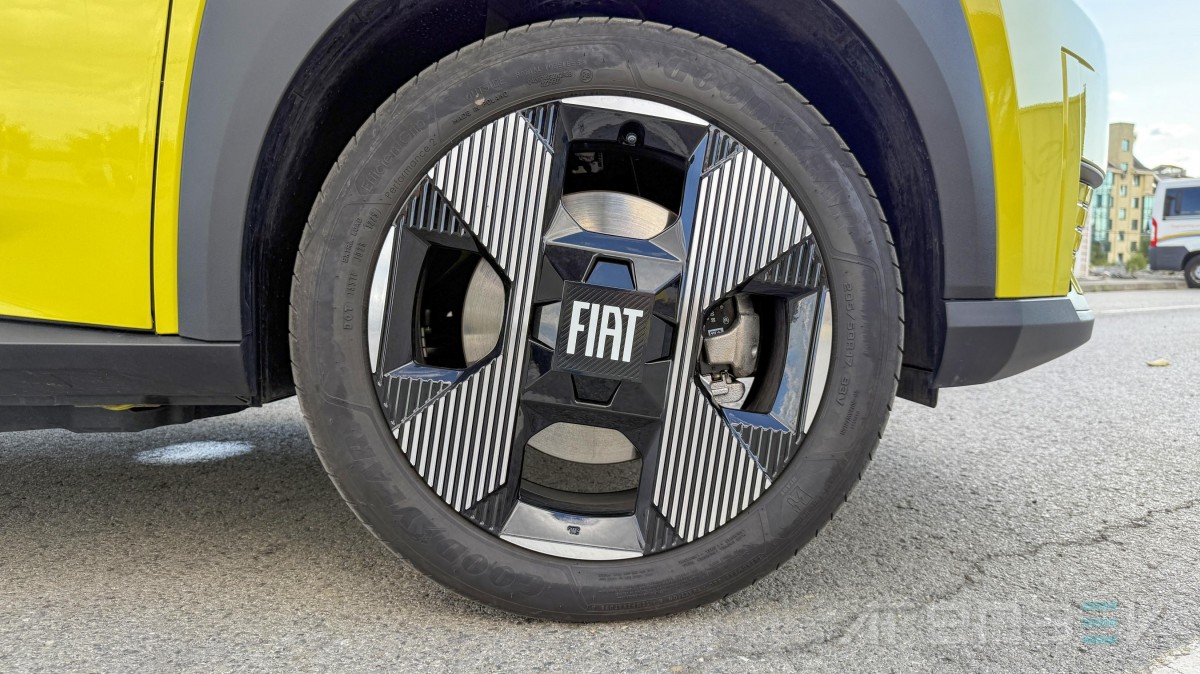
Fiat is famous for making the Panda a little off-road champion and the thick black trims all around the lower part of the Grande Panda suggest some offroad ambitions here too. All fenders once again incorporate that old Fiat logo.
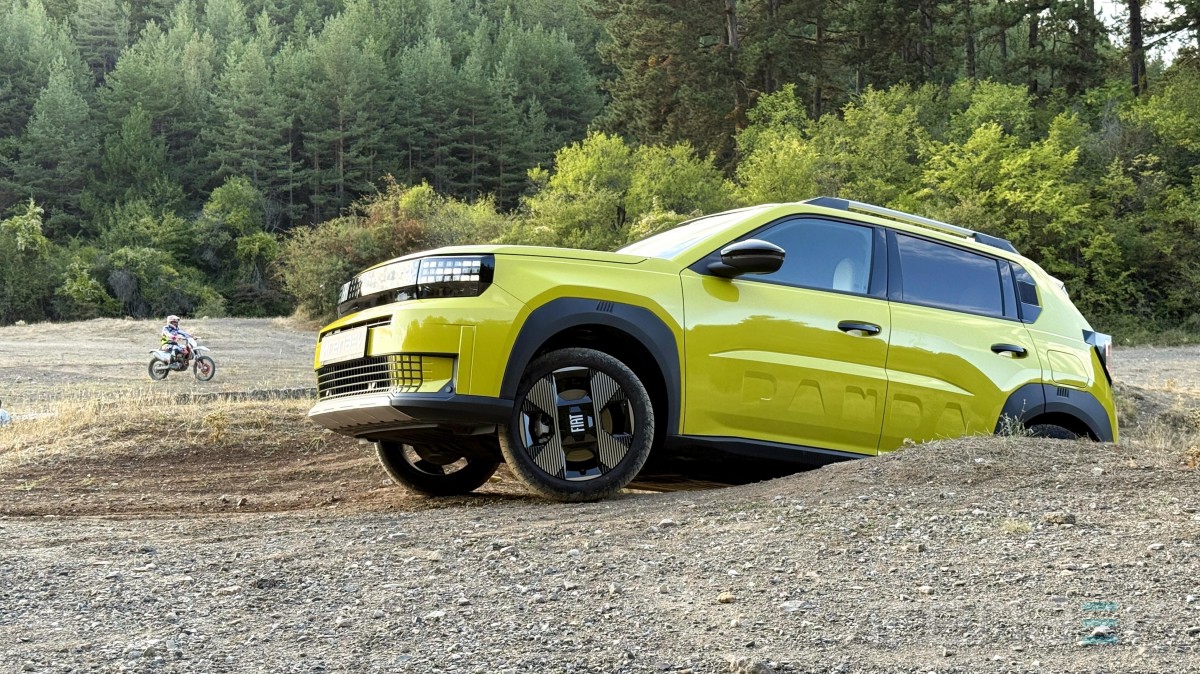
Adding to the rugged character, the Fiat Grande Panda comes with optional roof railings, which complement the exterior nicely.
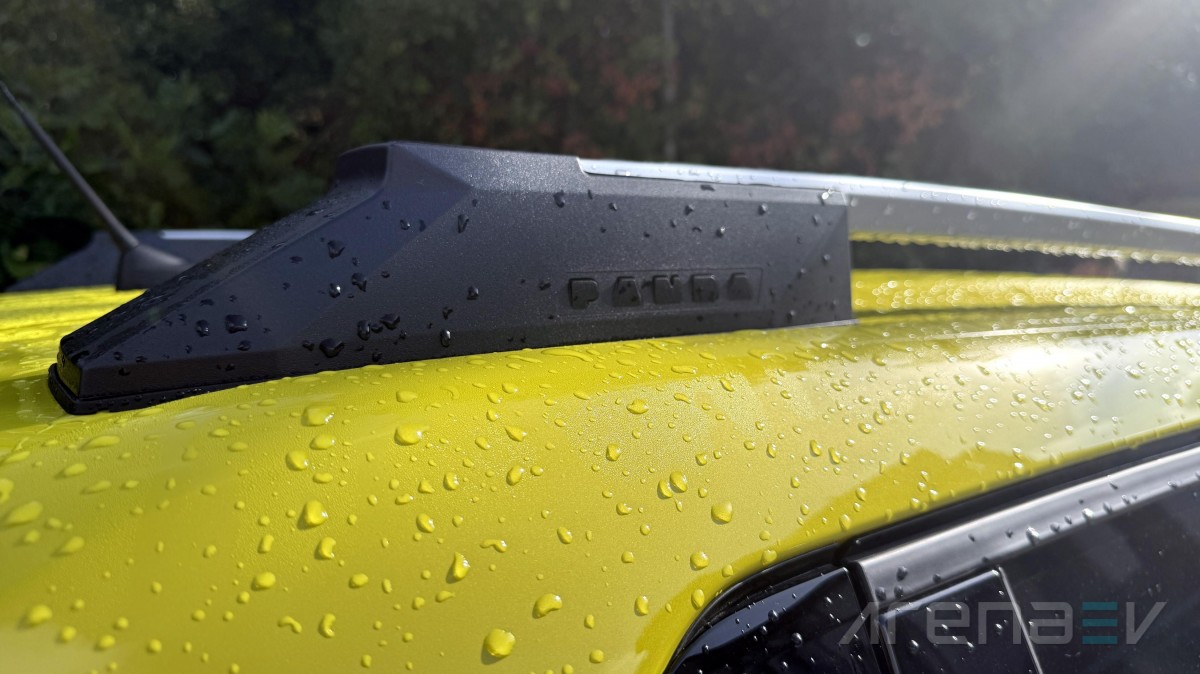
The front windows roll down completely, whereas the rear ones protrude ever so slightly. The window frame ends in a thicker black panel with a large Fiat logo. Depending on the angle you look at it, it can either spell out Fiat or show the four-slats emblem, which is a cool gimmick.
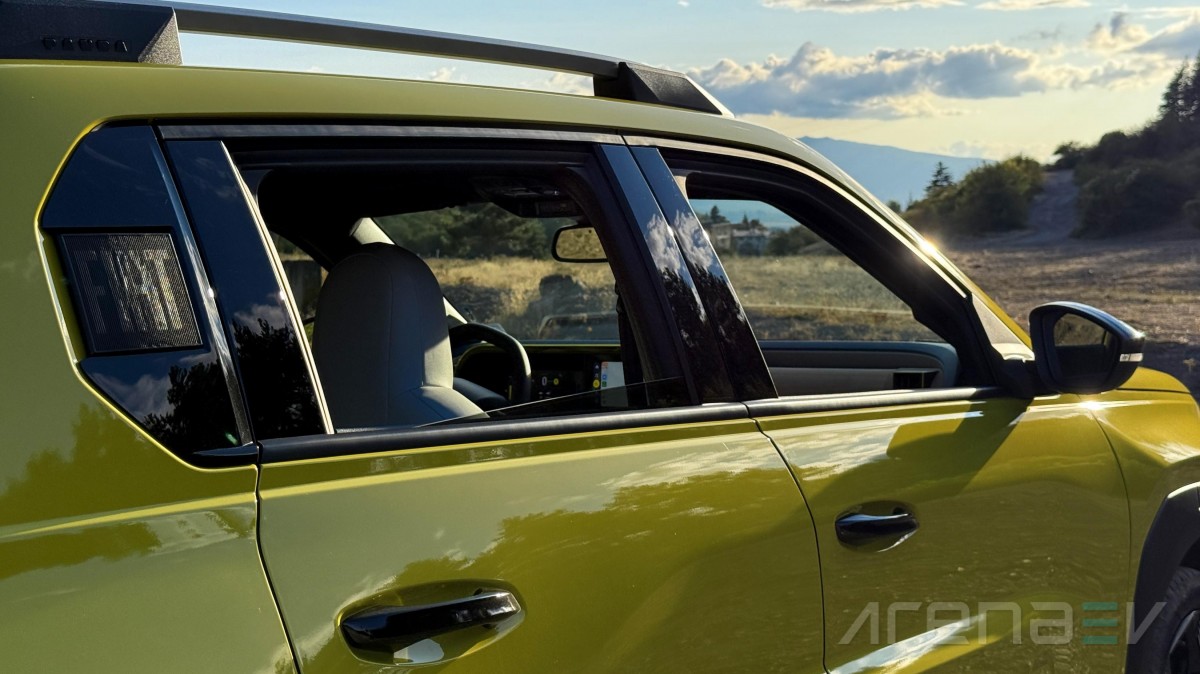
The rear of the Grande Panda features a quirky boxy design that goes well with the rest of the car. The trunk has a giant Fiat inscription indented into the metal, with Panda written on the other side. Nowhere is the car noted as a Grande Panda though. Perhaps Fiat simply wants to capitalize on the recognition of the original brand and doesn’t want to overcomplicate things.
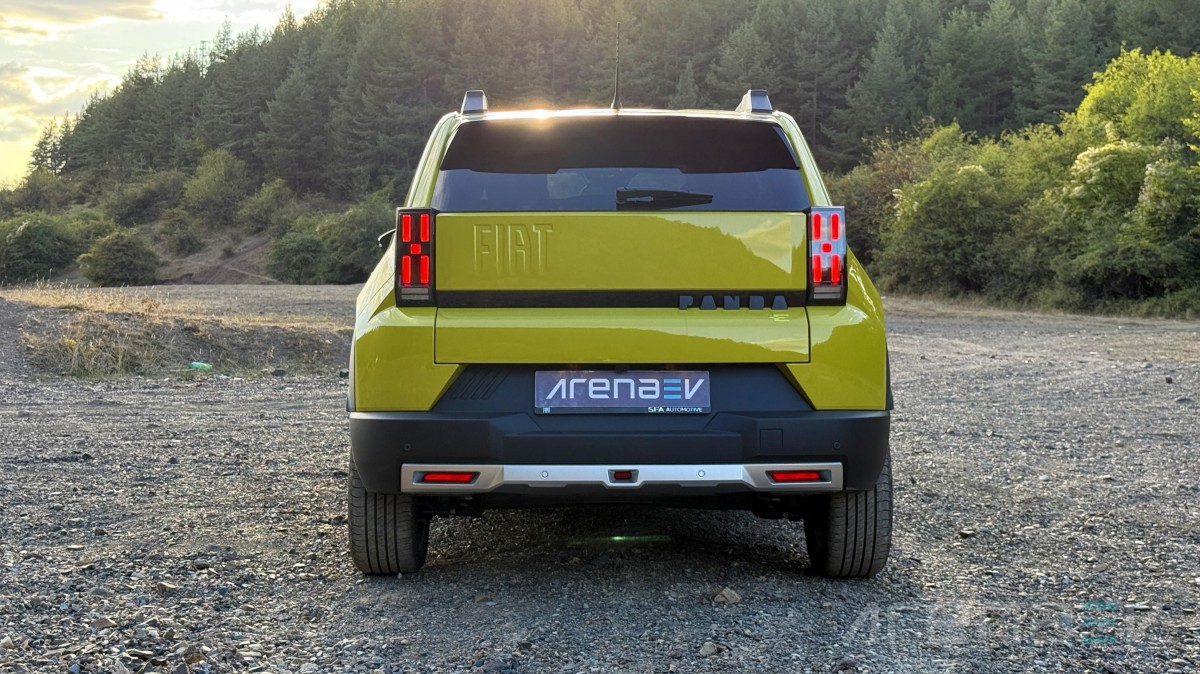
The tail lights are put in a giant housing that sticks out of the body of the car and offer the same pixelated design as the headlights.
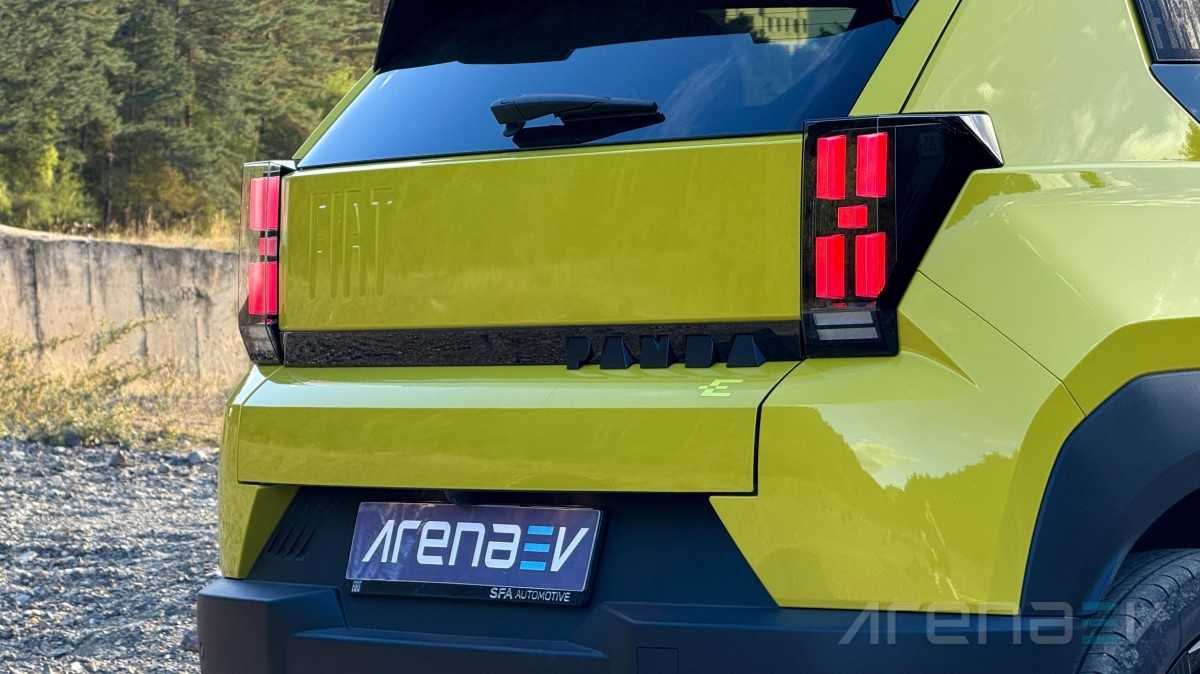
The rear bumper is blacked out, with the exception of a thin chrome line that imitates underbody protection. Once again, we see the old logo peeking to the left of the license plate, ever so slightly.
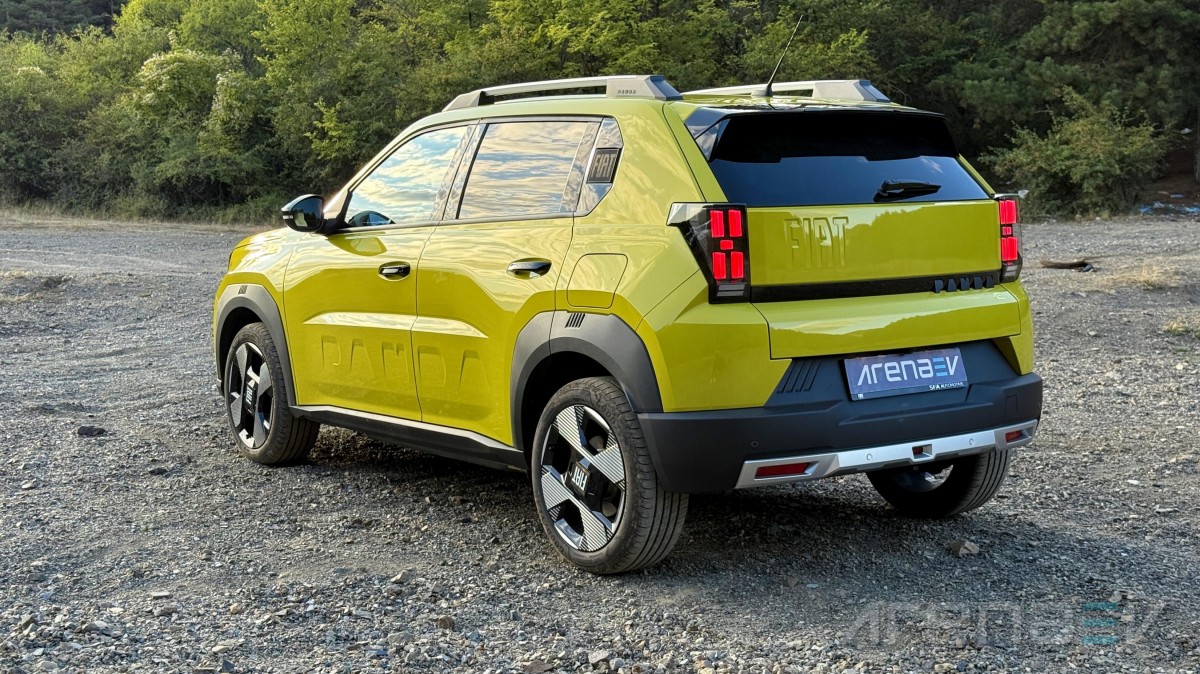
Interior
Fiat has mostly used recycled plastics throughout the interior and bamboo accents to create an environmentally-friendly cabin. For a very cheap vehicle, everything feels solid and well built, but some of the surfaces are rather unpleasant to touch and feel very cheap. This is understandable for the segment, yet never a good thing.
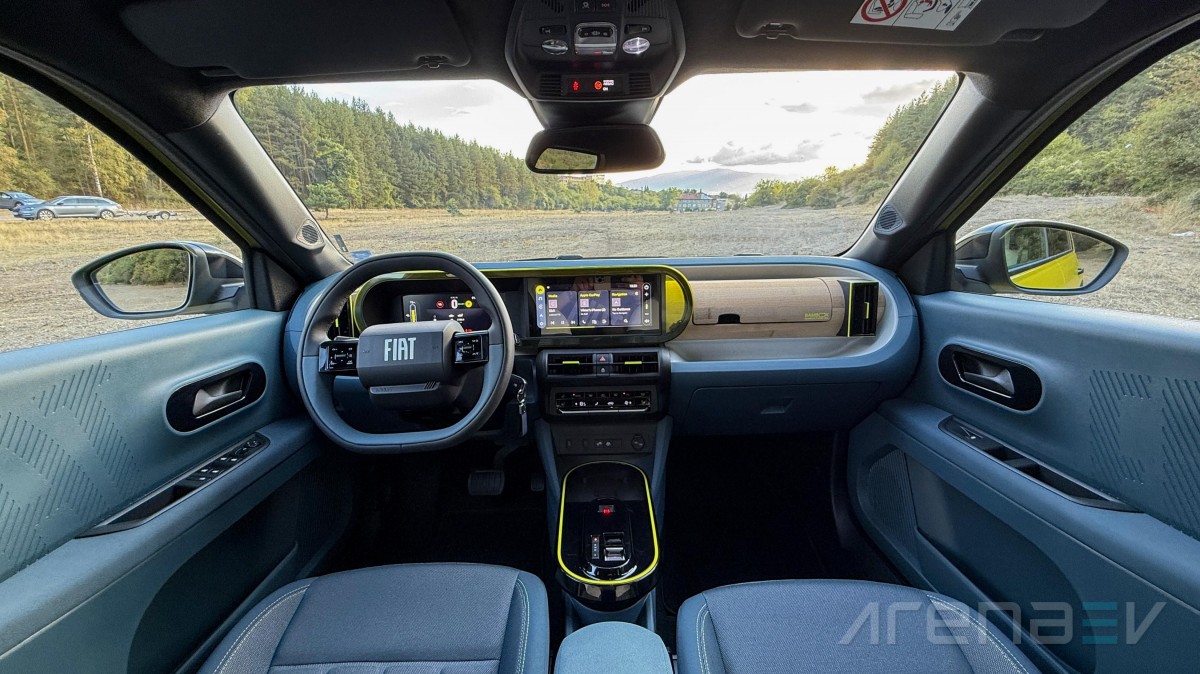
Everything is designed to be ergonomic and easy to use. Once you enter the cabin, you sit comfortably on the soft seats and all the buttons you might press are easily readable and accessible. The seats are two-tone in blue and white, and you can pick from a number of colors and patterns.
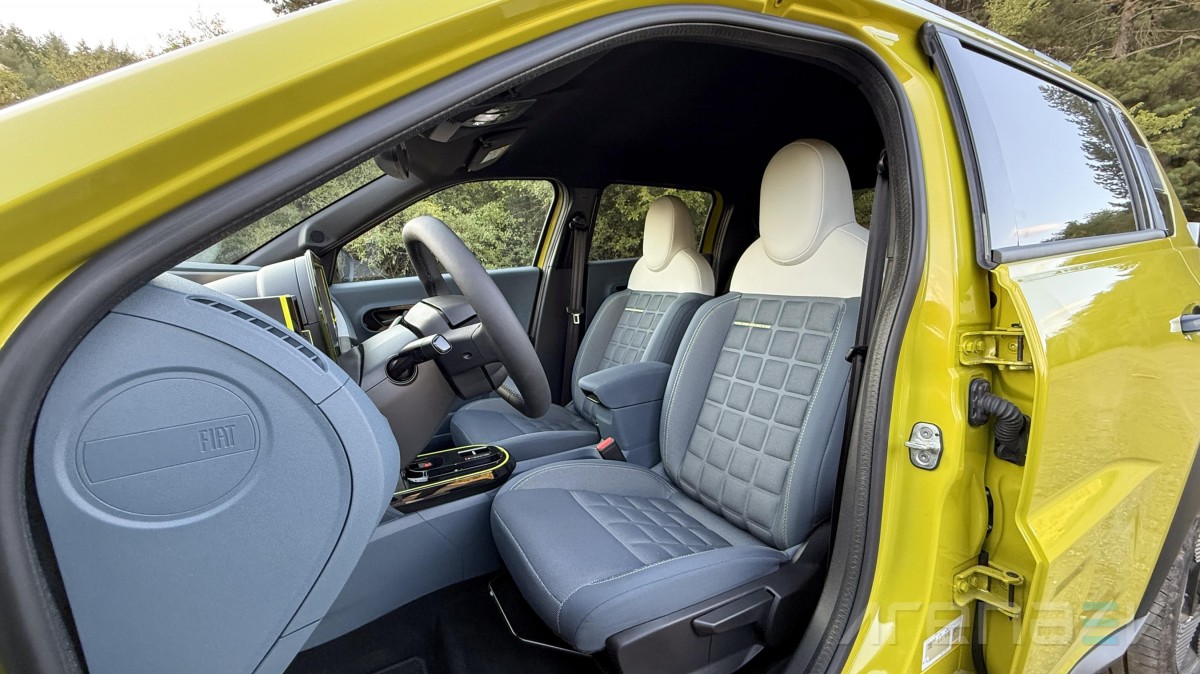
The steering wheel is also two-tone in our test vehicle and is flat on the top and bottom. Despite its weird shape, the wheel feels nice to use and easy to operate. You get a huge Fiat label in the center and down on the right is another a tiny four-slats logo.
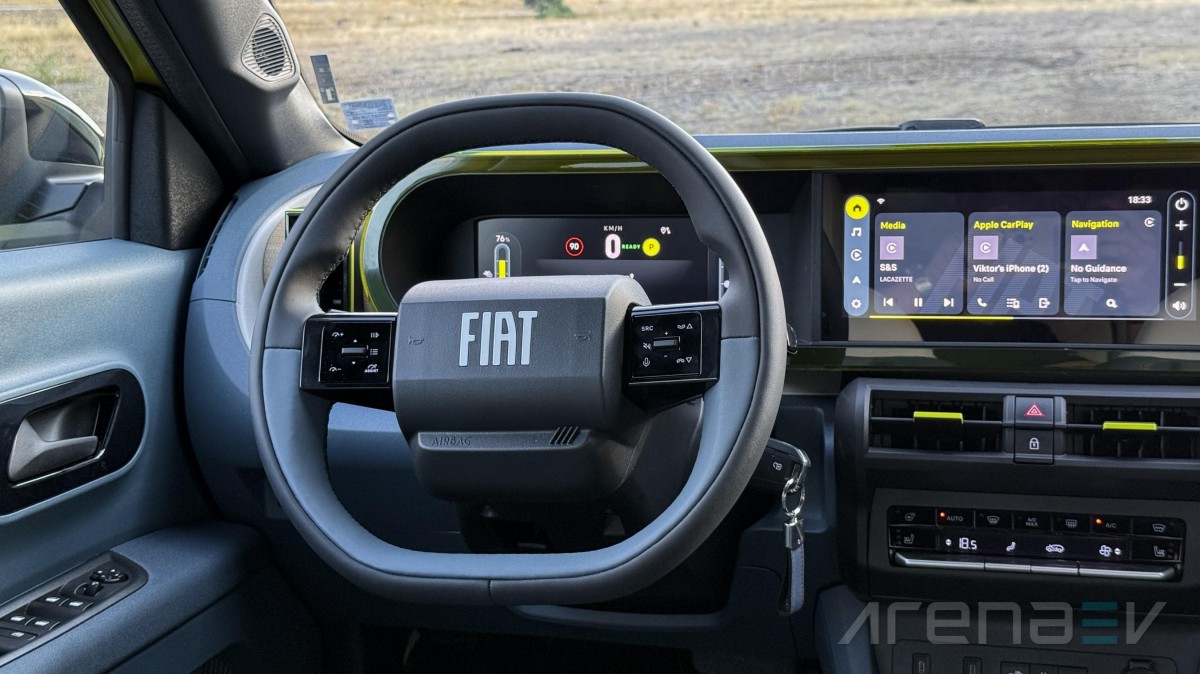
We are used to having the stalks behind the steering wheel incorporate multiple features in Stellantis models. However here only the right one can be pushed inside to control the driver's display.
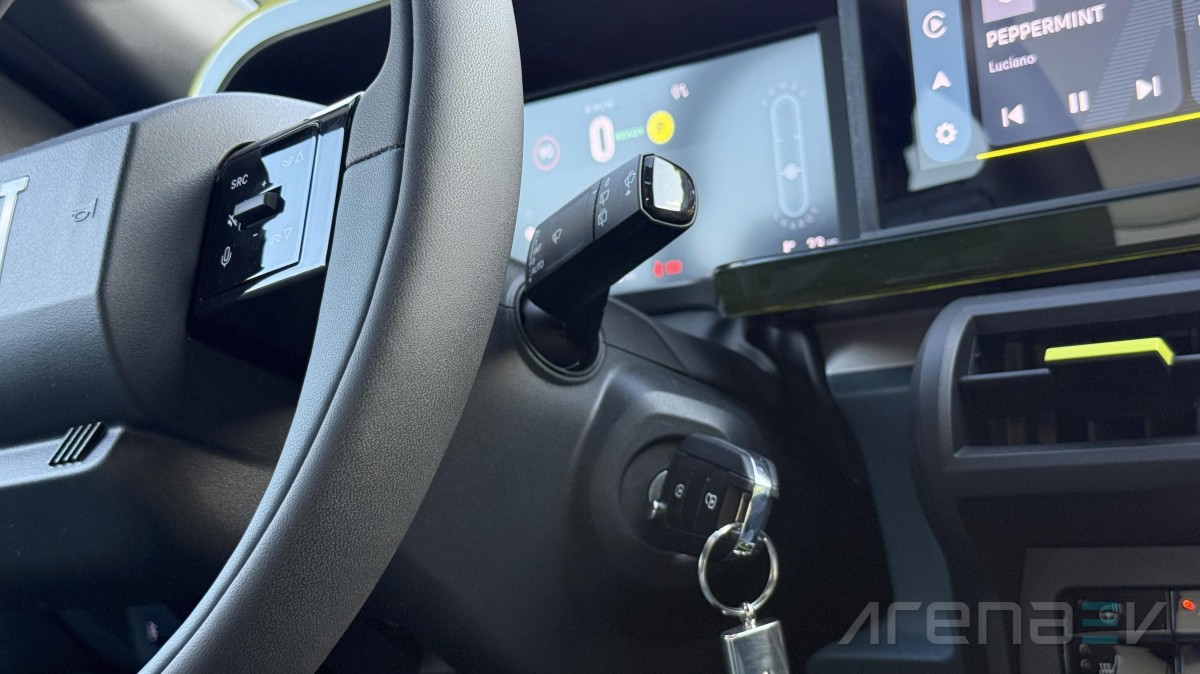
Which leads us to the gauge cluster display and its functionalities or should we say lack thereof. It shows some basic information you might need while driving, but there isn’t even a readout for the efficiency. You get just a trip meter and average speed showing.
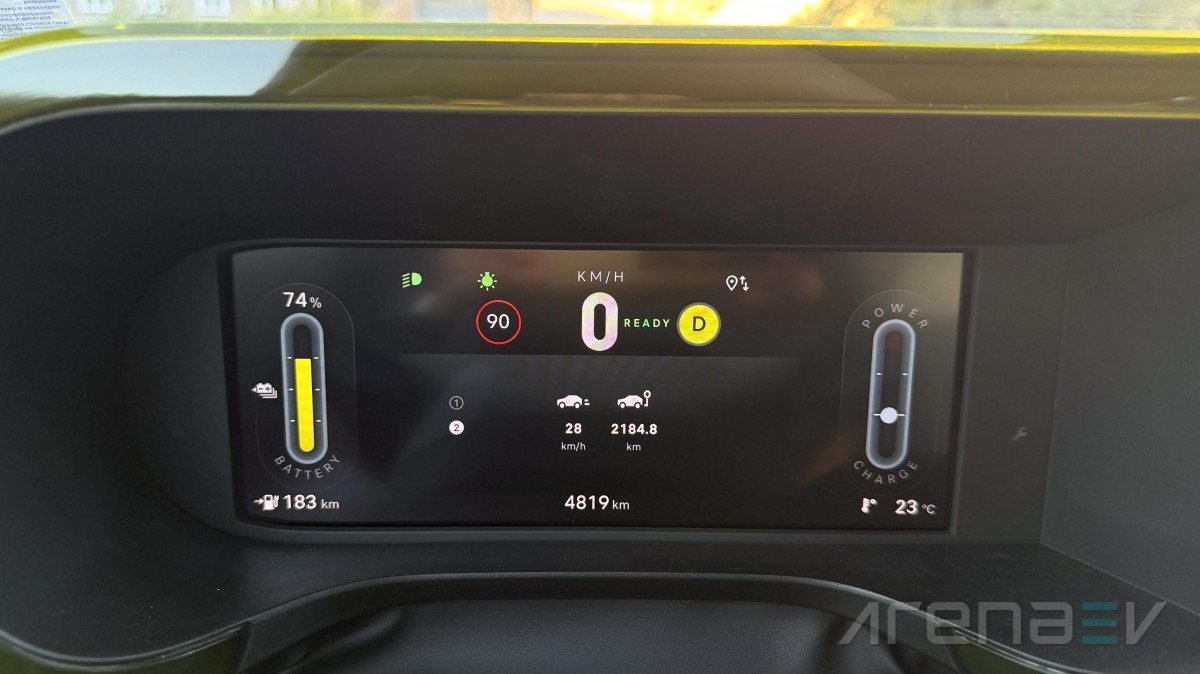
Next to the driver’s display is the central screen, which is 10.25 inches in diagonal and again offers limited functionality. However, the little that it does, it does great. The display is responsive and has good clarity and the controls are extremely easy and intuitive to use.
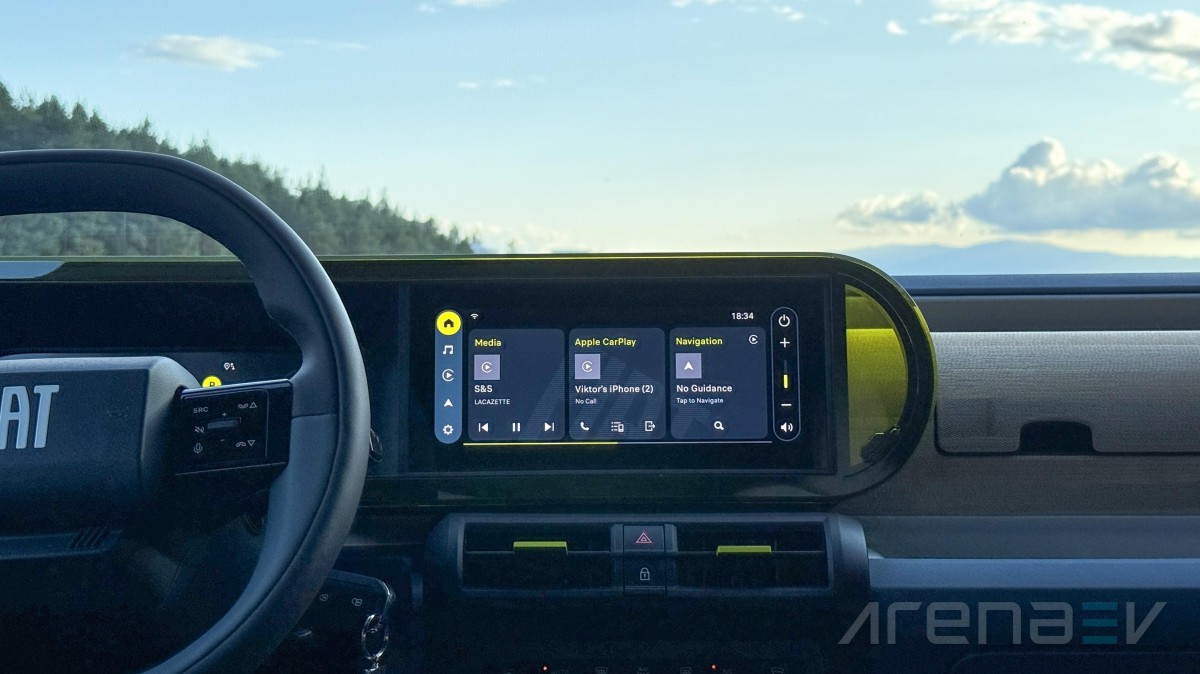
Both displays are surrounded by an oval with colorful accents. You can see next to the infotainment display a Fiat Grande Panda driving on that oval. This is, in fact, Fiat’s famous test-track on the roof of its factory in Turin. The track is no longer in use, but this is a notable tie to the roots of Fiat and how the Grande Panda fits into the lineage of the company.
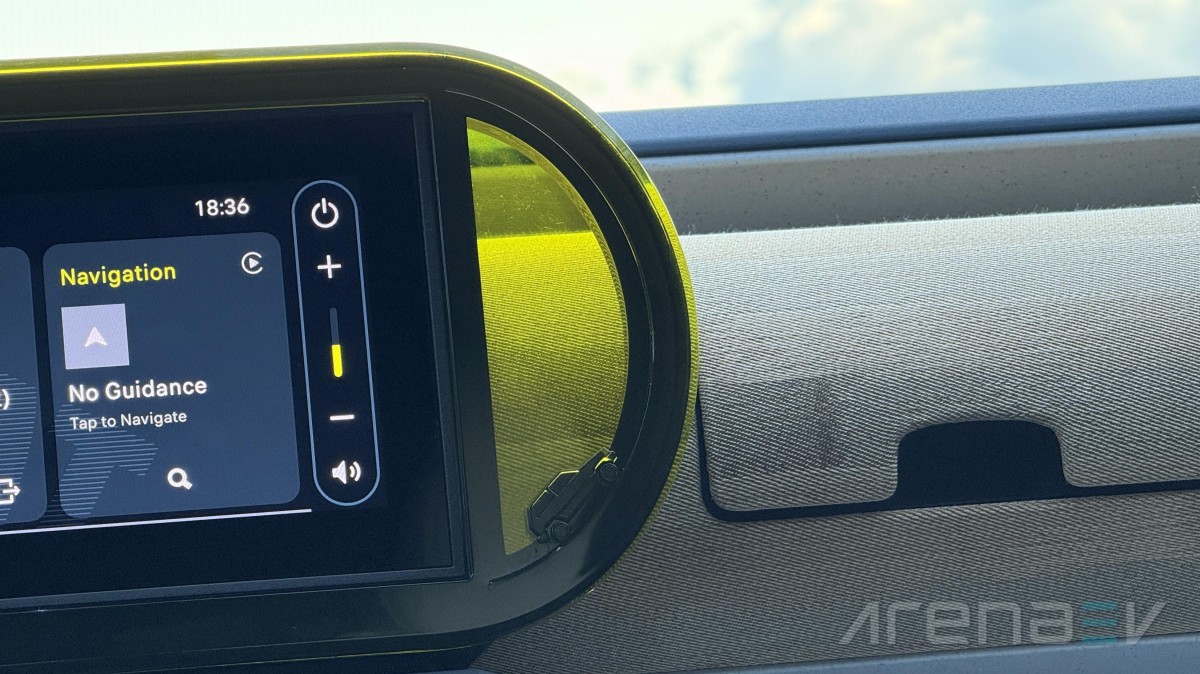
The upper glovebox compartment is made out of bamboo fiber and sticks out. It is otherwise just a regular storage space for items you cannot fit or don’t want in the regular glovebox over the passenger’s legs.
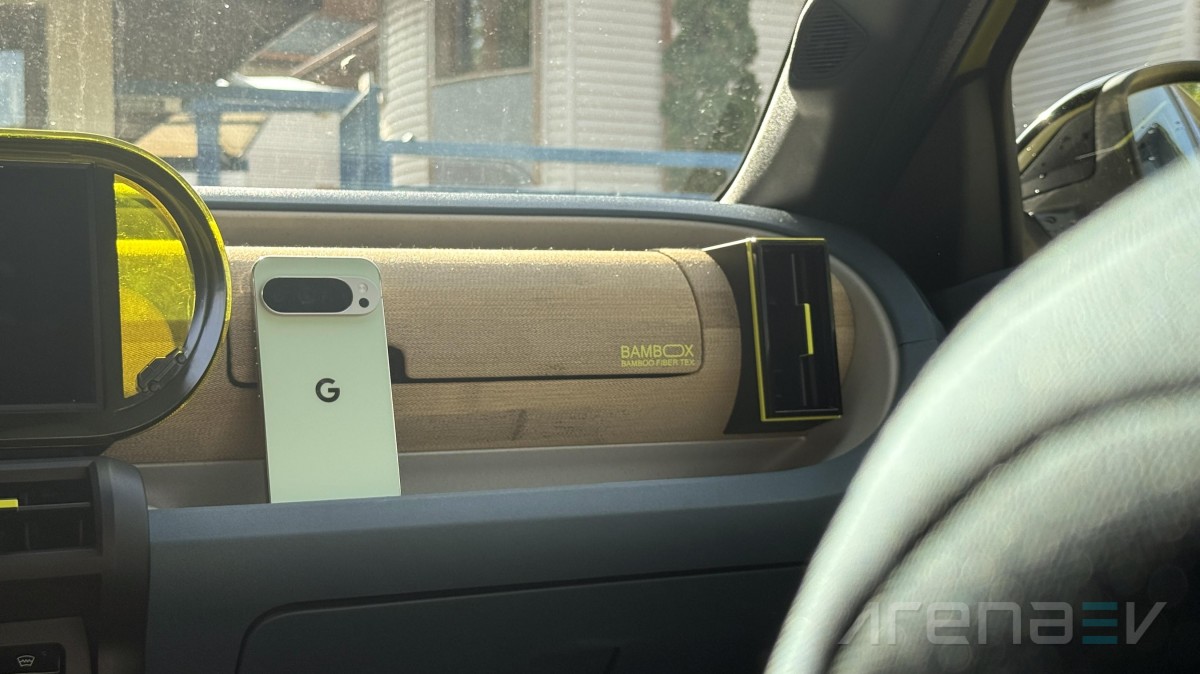
The entire dashboard is enclosed between the two giant storage areas. This is very useful as you can store multiple small items you use regularly in these open spaces and have quick access to them. The lower one even continues to the left of the steering wheel for a tiny open storage area.
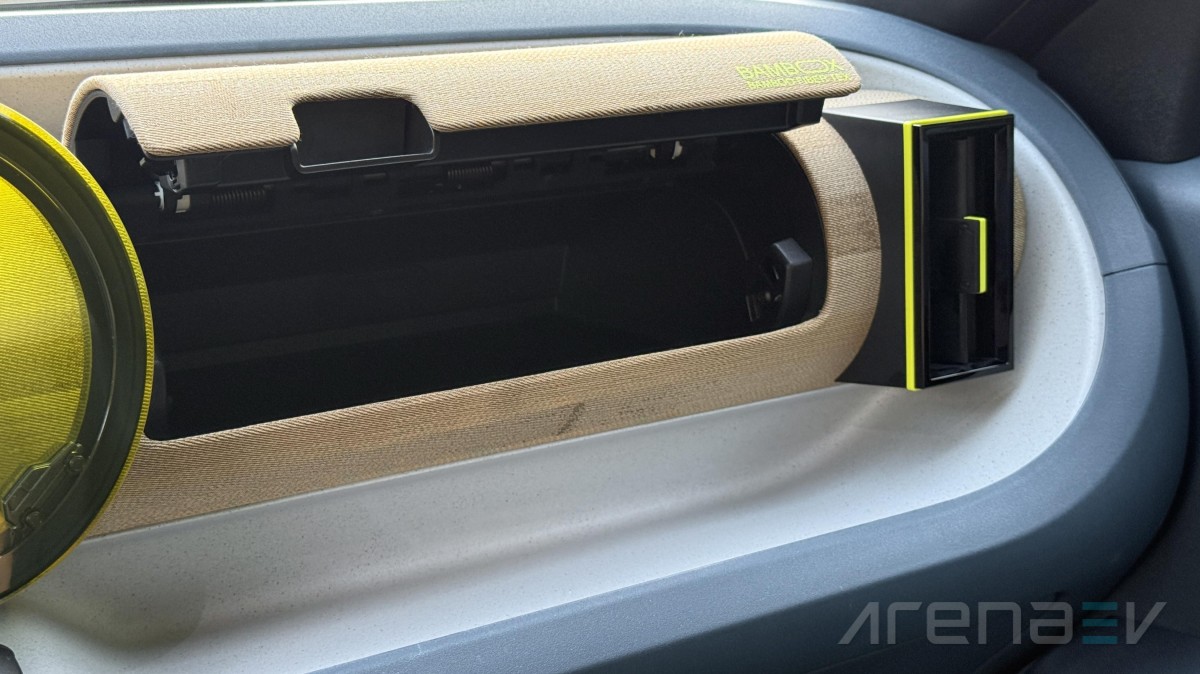
The center stack’s sole purpose is to control the air conditioning. It is simple and intuitive, without offering anything special. You also get heated seats and even a heated steering wheel, which is a big plus for such a small budget vehicle.
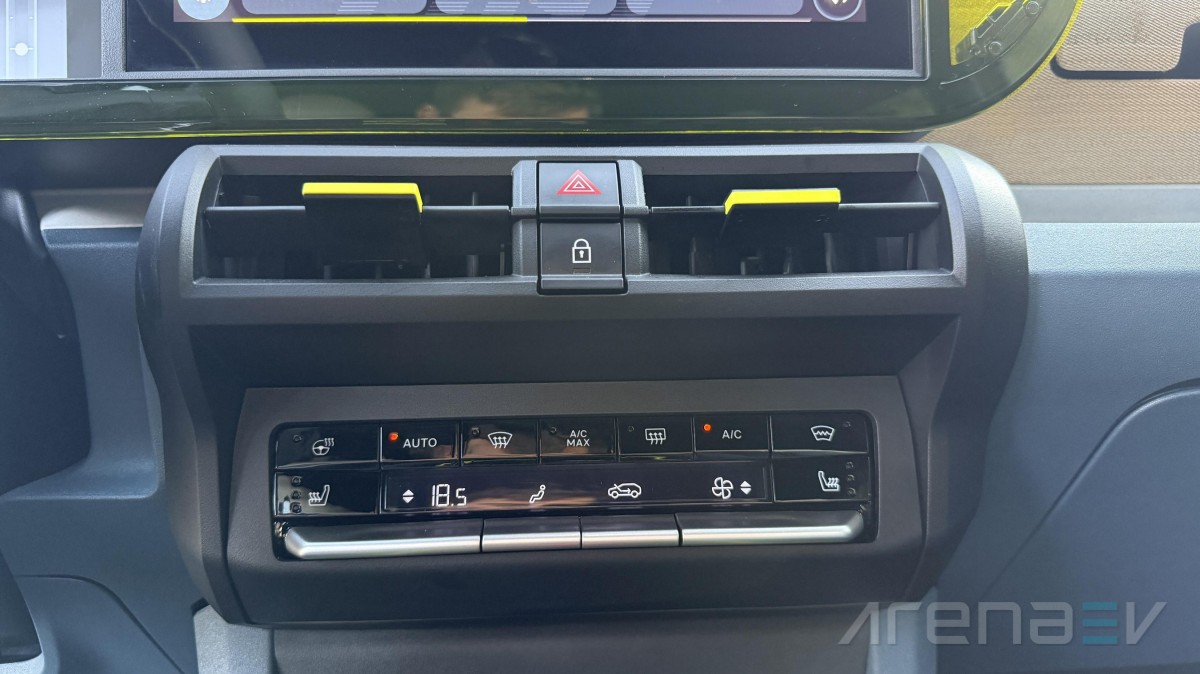
Underneath the AC controls you get two USB-C chargers and a 12V outlet.
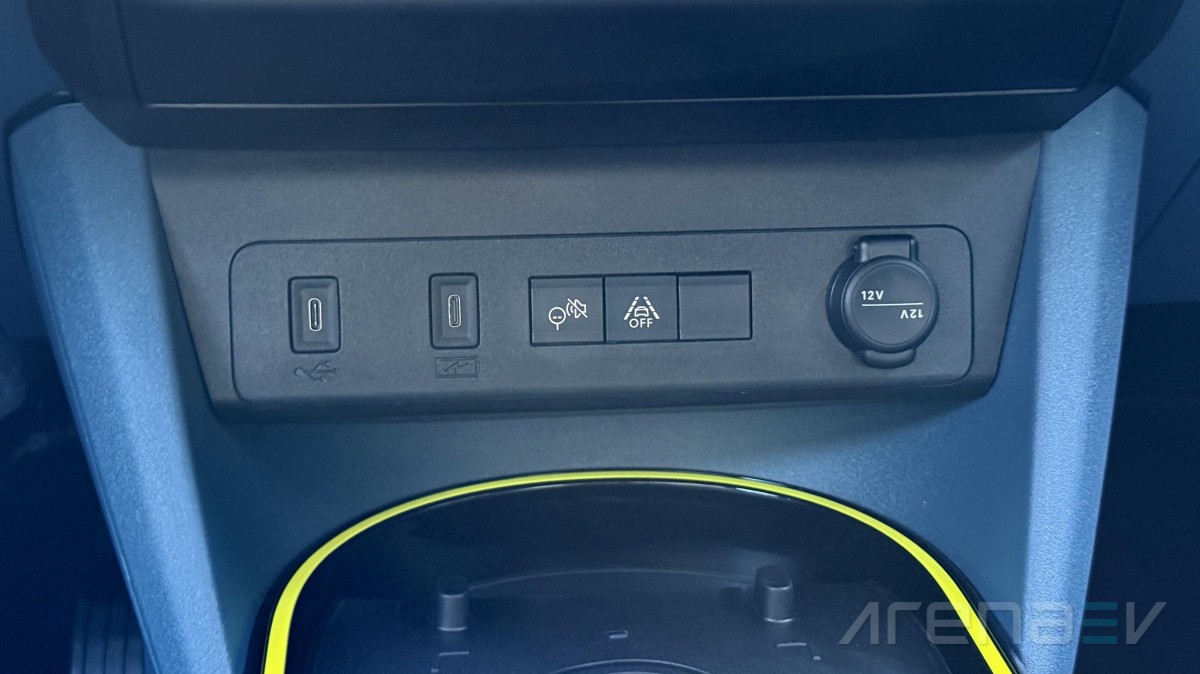
But more importantly, you get two buttons for switching off the lane-keeping assist and the speed limit warning. Both of them are mandatory to be "on" at all new vehicles but Fiat has made sure that they’re as easy as possible to turn off. Why are these assistants mandatory and how they may be problematic you can check out in our dedicated article.
The center console starts with a wireless phone charger that works surprisingly well, given that most of the time we test built-in phone chargers they just heat up the phone and don’t charge it particularly quickly.
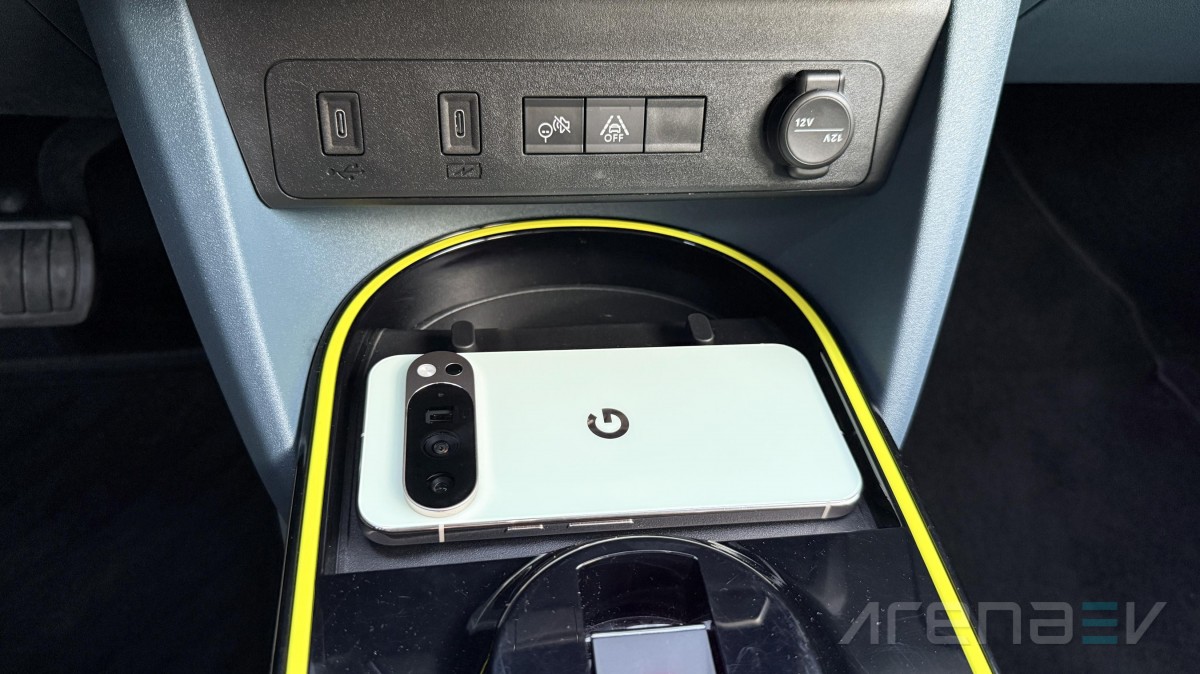
The rest of the console is a giant space, occupied by the gear selector and the parking brake. It is a bit of a waste of space and the piano black trim will get severely scratched in no time. Once again, the oval-shaped unit symbolizes the iconic Turin roof track, only this time without a Panda driving on it.
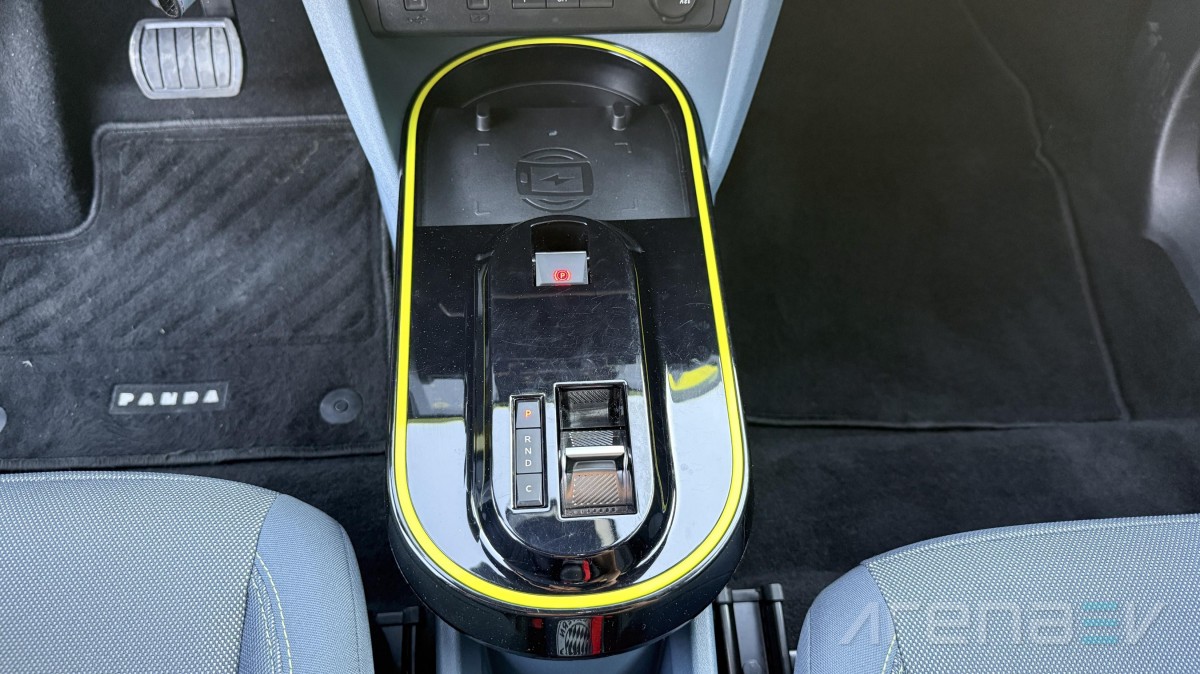
The cup holders are movable and resizable so you can fit bigger cups or completely remove the barriers and use the place for storage. It is a clever, yet not optimal solution as most drinks don’t fit snugly and can spill while driving. However, you can fit large bottles even under the armrest, which moves and opens for even more storage.
Sadly, there is no sunroof offered in the Grande Panda, which would’ve made its interior feel far roomier.
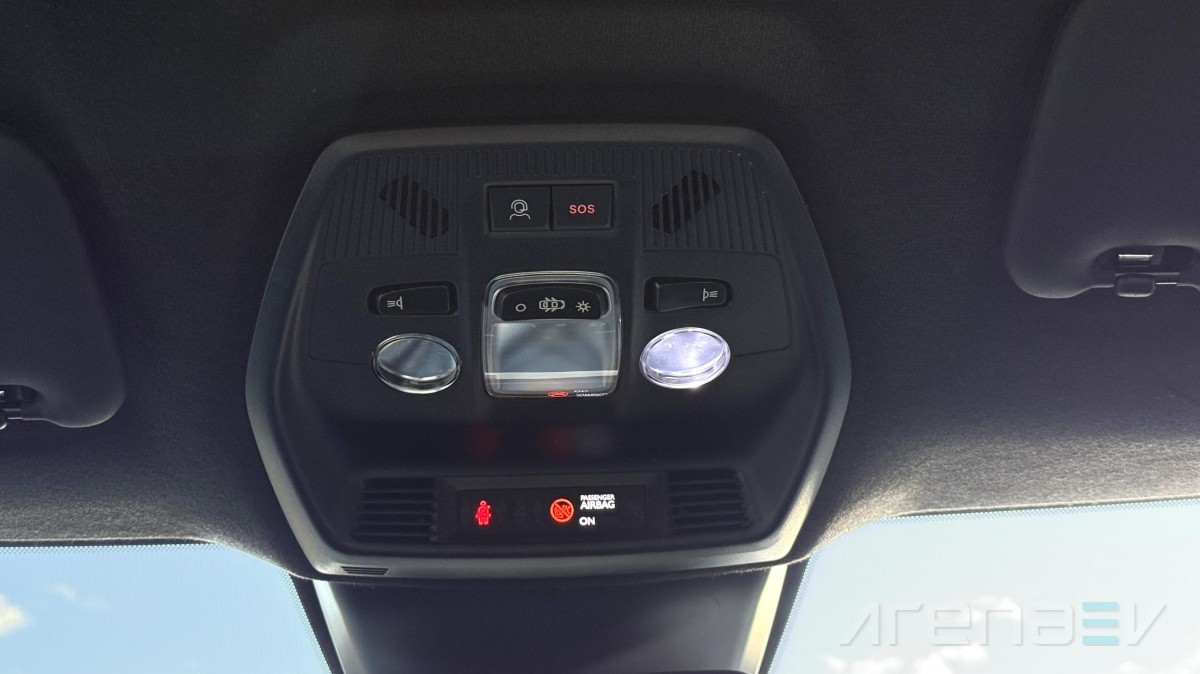
Also, there are no mirrors on the sun visors. This doesn't seem like much at first glance but it might be an inconvenience to some.
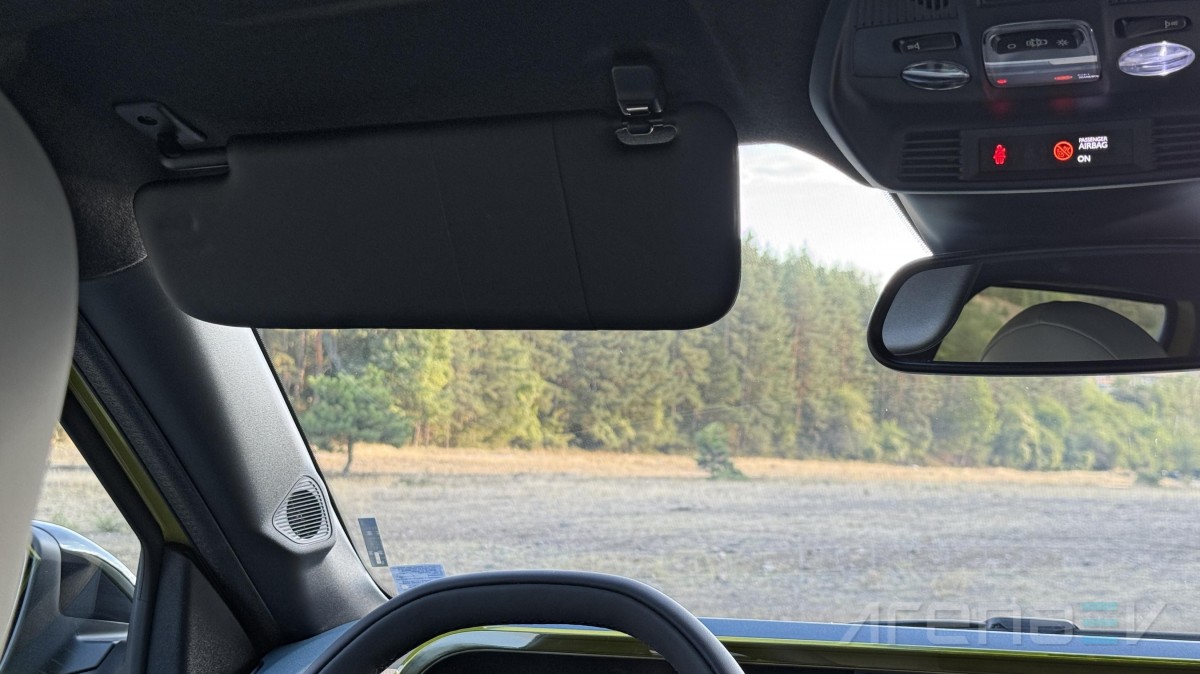
The door sills are almost entirely plastic and feel very bad to touch. They look cool and have Fiat written all over them, but in reality they are at a point where cost-cutting might have gone to the extremes.
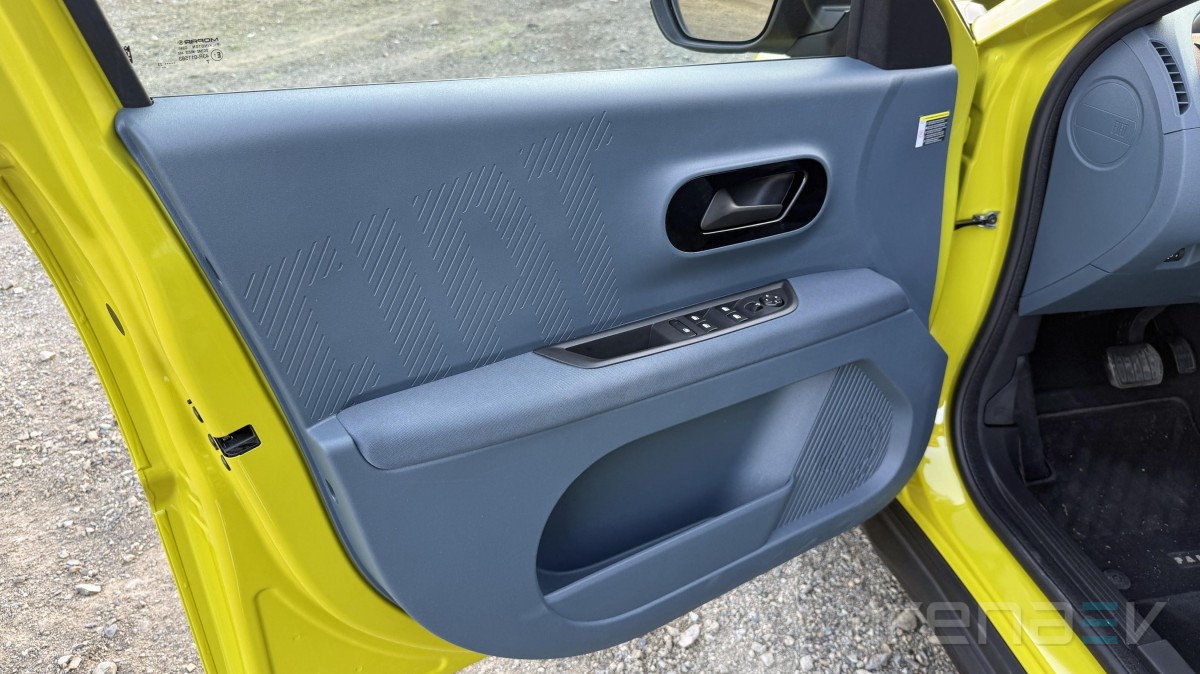
The back seats of the Fiat Grande Panda carry over the same blue-white pattern and are also very comfortable to sit in. You don’t get air vents, cup holders or an armrest but you get two USB-C charge ports. Maybe that was not the greatest tradeoff.
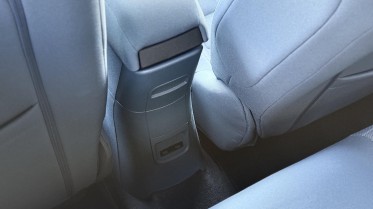
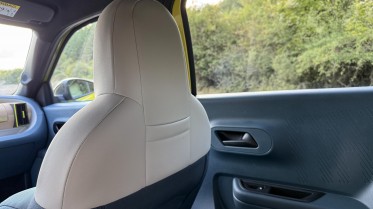
USB-C and a phone pocket aren't the greatest luxuries for the rear.
Our reviewer stands at 195 cm (6’4”) and almost fits behind his own driving position. This means that for smaller passengers or kids, the back seats are a comfortable place to spend time in. Some rivals like the Hyundai Inster perform better in that category, yet there is nothing to worry about in the Grande Panda either.
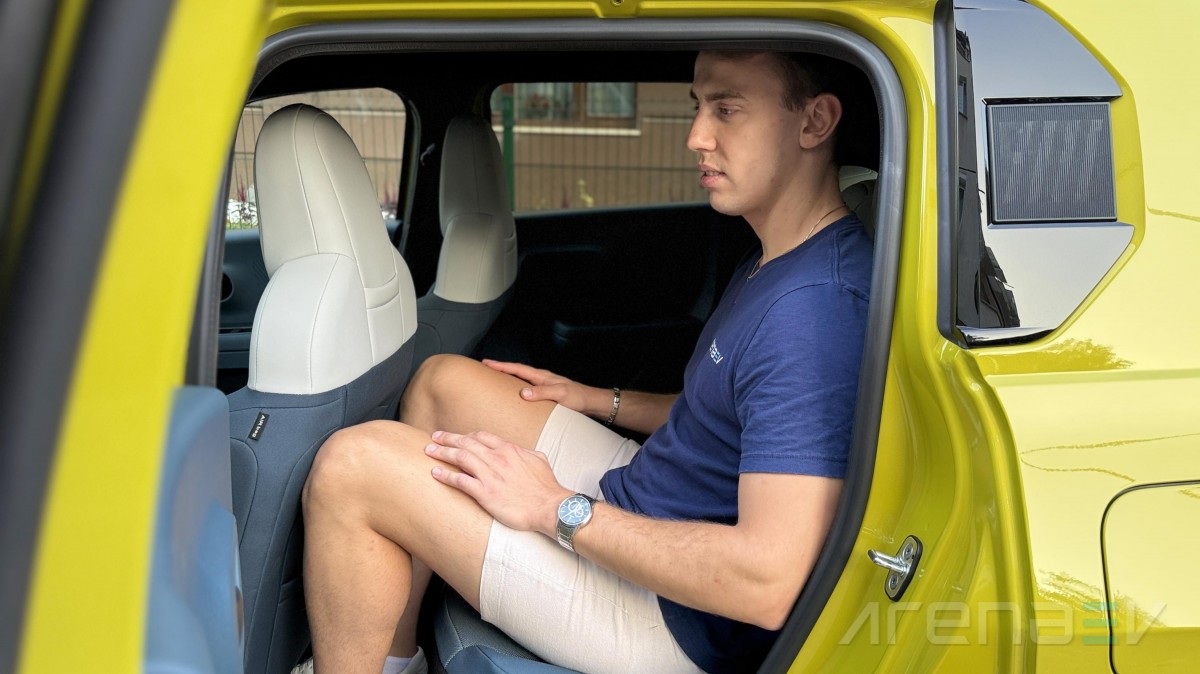
Headroom, is quite generous and even our reviewer is left with some space to spare.

Storage & practicalities
The trunk of the Fiat Grande Panda is among the biggest in the segment. It offers 12.7 ft³ of storage with the rear seats up. There is also some more space underneath the main floor, where you can store something very tiny next to the tire repair kit.
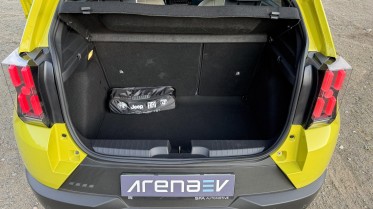
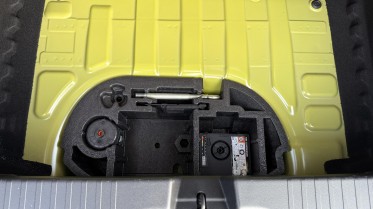
Almost no space is left under the main trunk floor.
With the rear seats down, you get quite the storage space. 46.4 ft³ is a substantial amount that will fit many big items. What hinders it is the fact that the seats don’t fold flat with the trunk floor and you’ll either have your items at an angle or need to improvise a false floor of some sort.
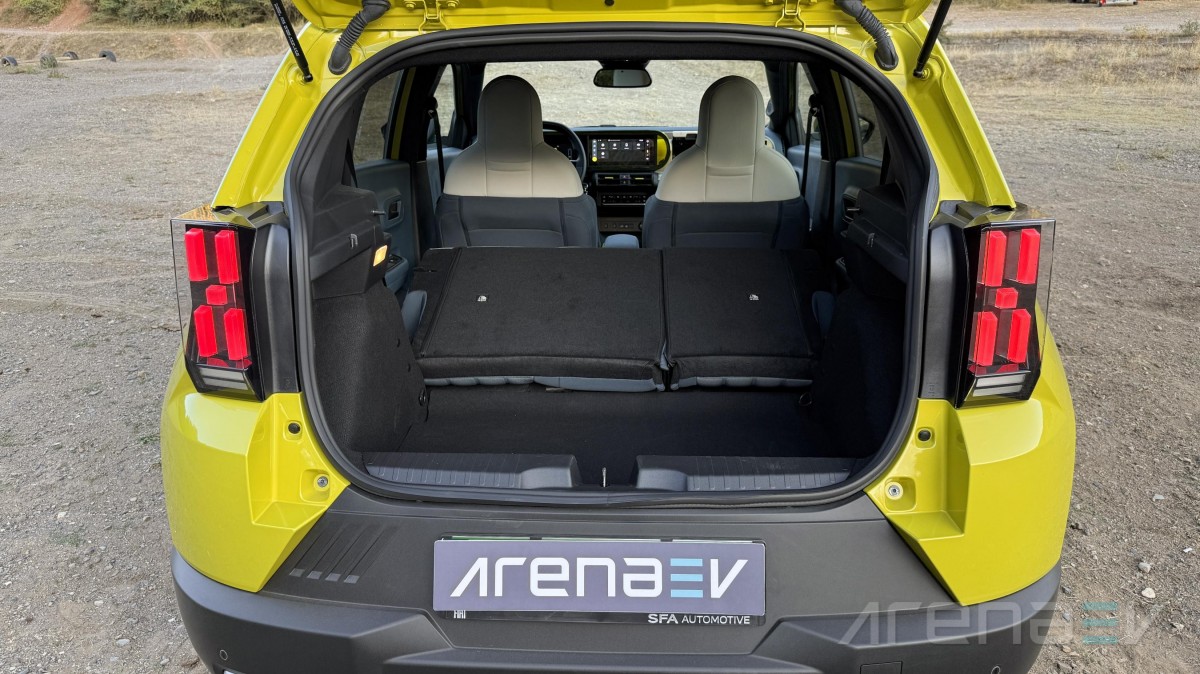
Sadly, there is no frunk (front trunk), which slightly limits practicality. However, you don’t need to keep your charging cables anywhere inside as the cable goes out of the logo.
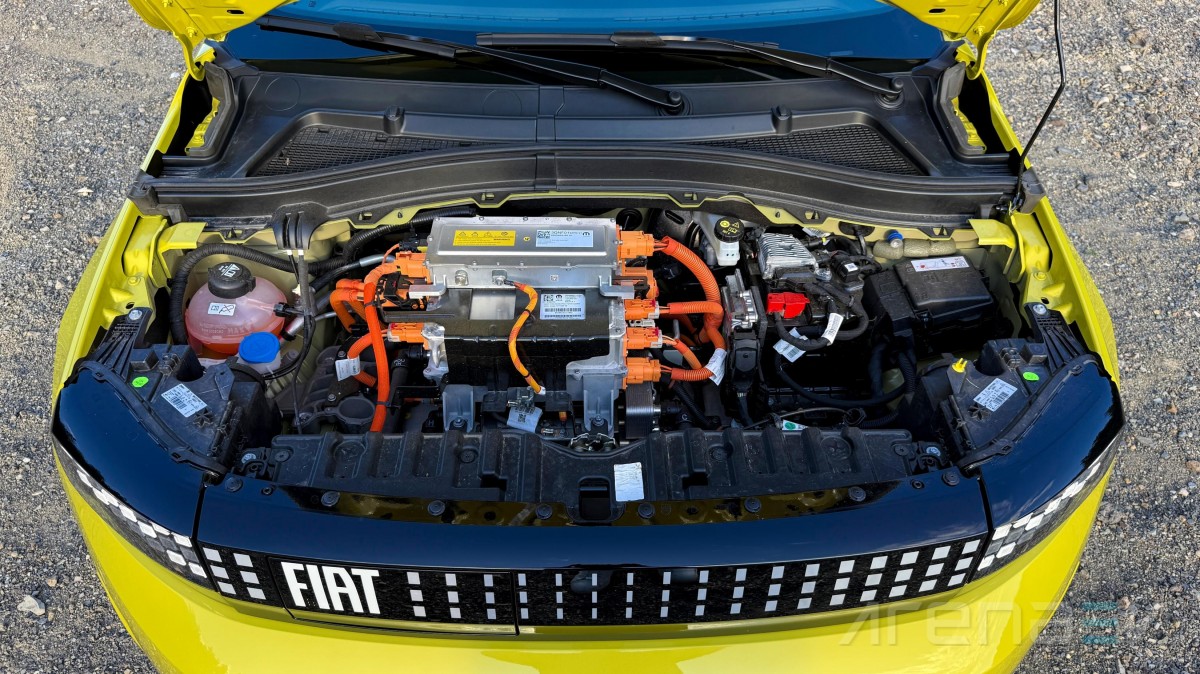
Driving experience
The Fiat Panda has never been about the driving experience and more about convenience. It is a model for getting people around and enjoyment is a distant secondary priority. The case is exactly the same with the new Fiat Grande Panda, as driving experience can be characterized as soulless if we are being generous.
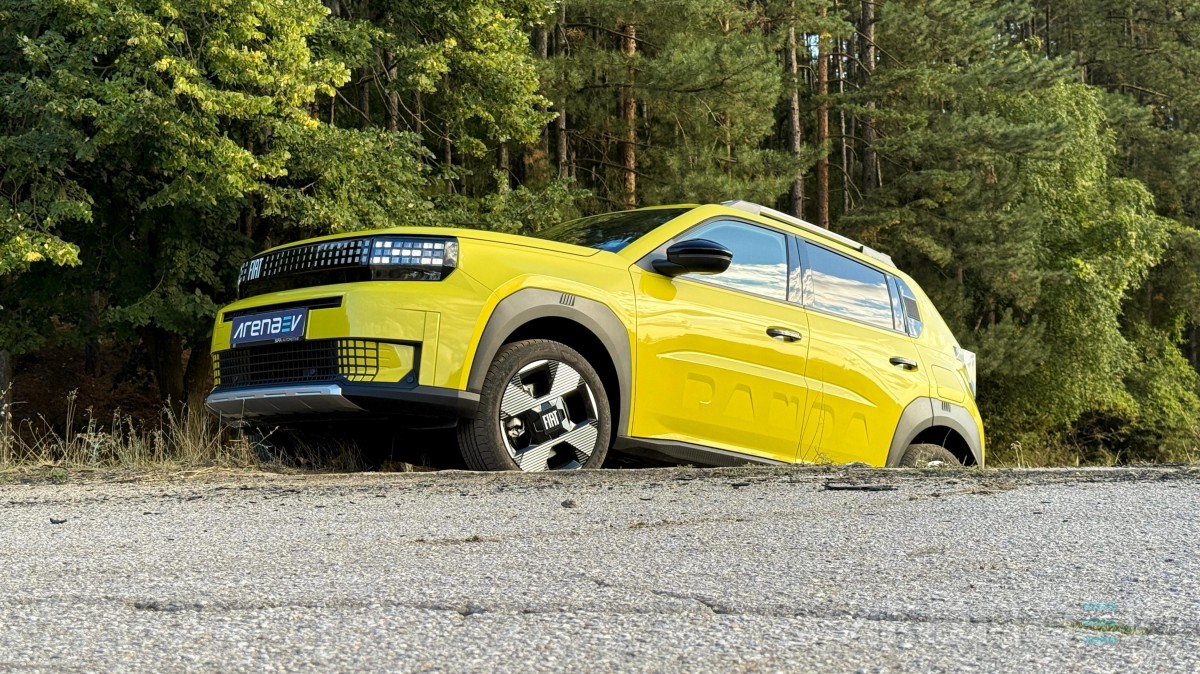
The Fiat Grande Panda doesn’t offer any driving mode adjustments. As a driver, you will either love or hate this simplicity.
The steering wheel feedback is vague and the steering is light. That suits an urban vehicle perfectly as it allows for effortless quick turns and it eases daily commutes.

Handling is perfectly normal for a car of this size and price point. Thanks to the low center of gravity due to the battery, the Panda stays planted in corners and gives off a sensation of stability. It is far from a sports car because of the significant body roll, yet it feels much better and more substantial than its predecessor. This is a big plus as the outgoing model had a tendency of understeering.
At high speeds the whole cabin starts to shake and the lightness of the steering wheel turns from a benefit to a hindrance. This isn’t the most common situation a vehicle of this size will be used, yet it would be nice if it were a little more stable, especially given the increased weight and size compared to the outgoing Panda.
The interior is roomy with huge glass windows all around. This makes parking and maneuvering very easy and intuitive. The A and C pillars are the only ones that create blind spots in an otherwise open interior.
We already mentioned how easy it is to turn off the driver aids, however we must note that there is no way for you to turn off the traction control. This limits off-road practicality slightly. Other than that, you get no other assistants, making the driving experience as pure as possible in today’s highly-assisted car scene.
Ride comfort
Small Italian hatchbacks have always been comfortable and the Grande Panda is no different. Small potholes go absolutely unnoticed and bigger bumps are easy to tackle. The suspension is right on the edge of being too soft, yet it manages to not be excessive. You still get a lot of bounce after impact due to the long travel of the springs and that means you shake for a while inside.
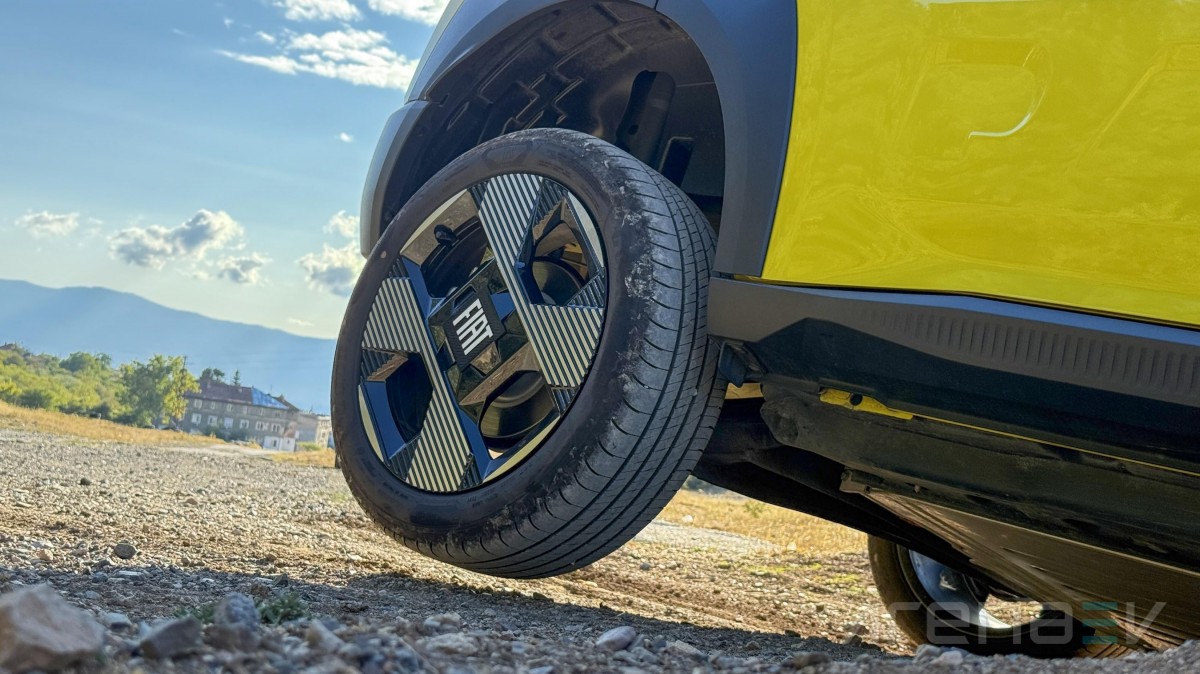
Tech features
The Fiat Grande Panda is far from impressive in term of tech, offers a minimalist approach instead. You get just the basics and nothing unnecessary, making it a very bare-bones vehicle in a world dominated by gadgets and technology in action while driving.
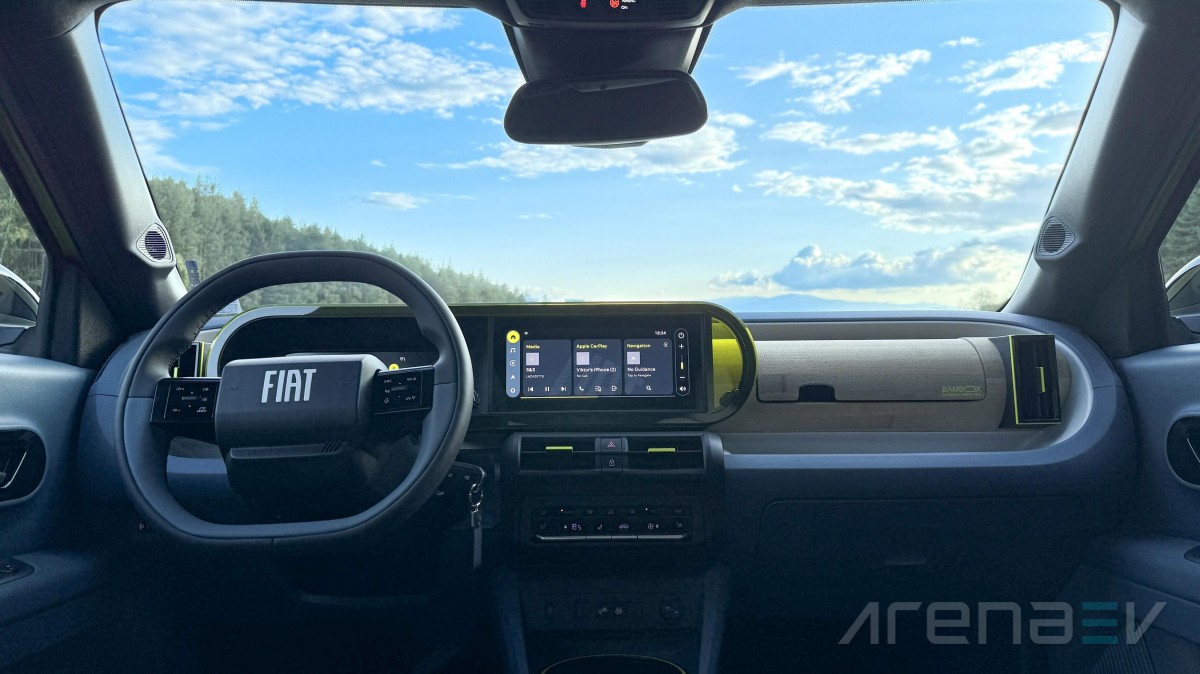
As we previously mentioned, the gauge cluster display is only a display, because it is cheaper than dials. It offers zero customization and can only show the trip information, albeit without consumption figures.
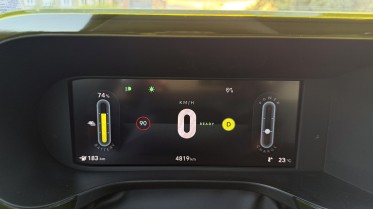

Trip information is the only available configuration of the gauge cluster.
The central infotainment screen is nice and bright with a sufficient size for modern standards. It has just a few menus and options and everything is quite easy to figure out.
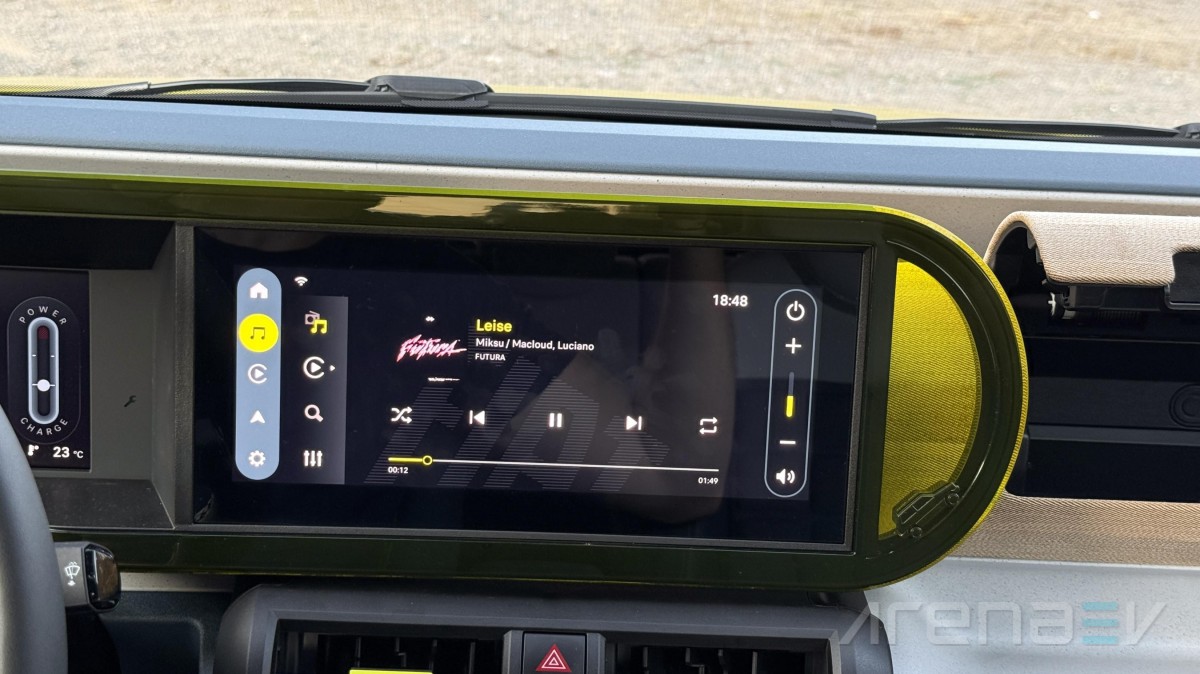
The home menu gives you easy access and preview of your media, phone connection and navigation. You just press on the one you wish and it expands. Although this area looks widget-based, you cannot customize it in any way.
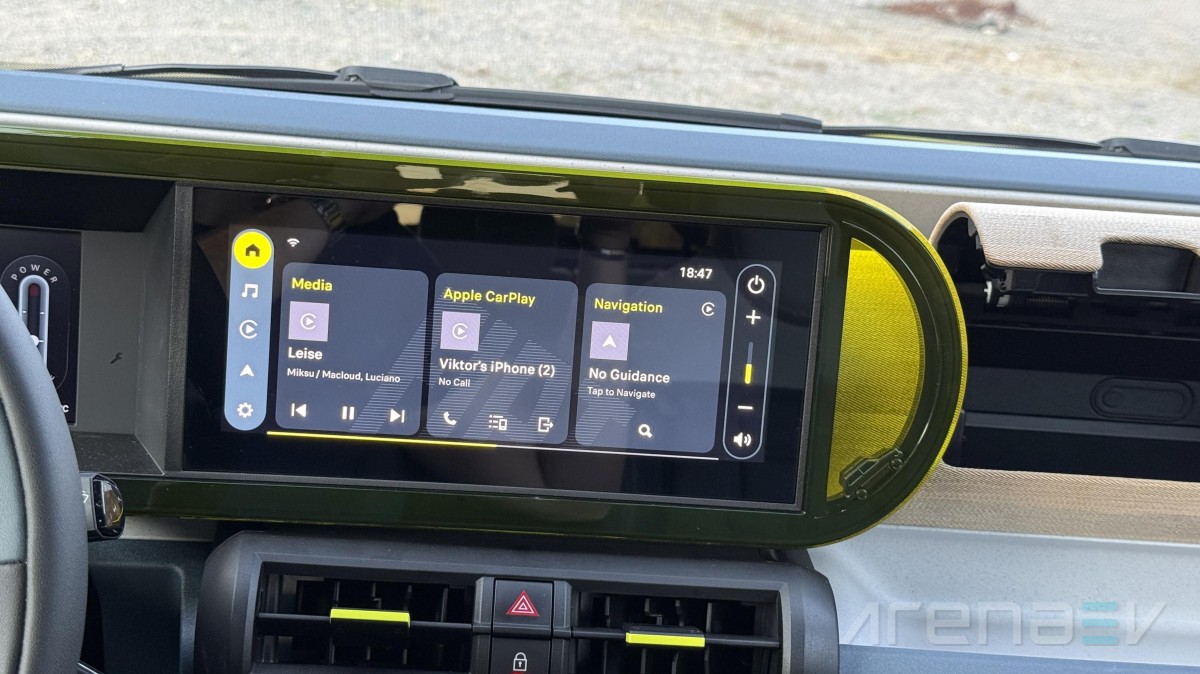
Luckily, there is Apple CarPlay and Android Auto on board and this makes you forget the lack of functionalities in the infotainment.
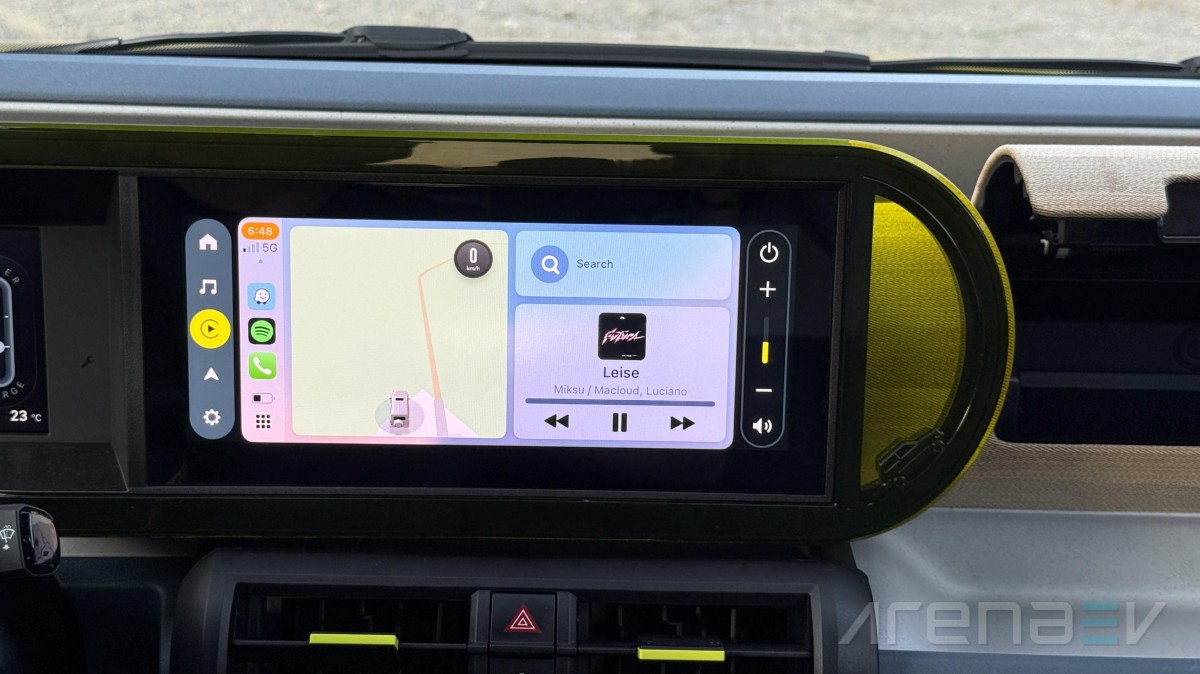
If you wish, the built-in navigation system is also adequate and offers you charging stops.
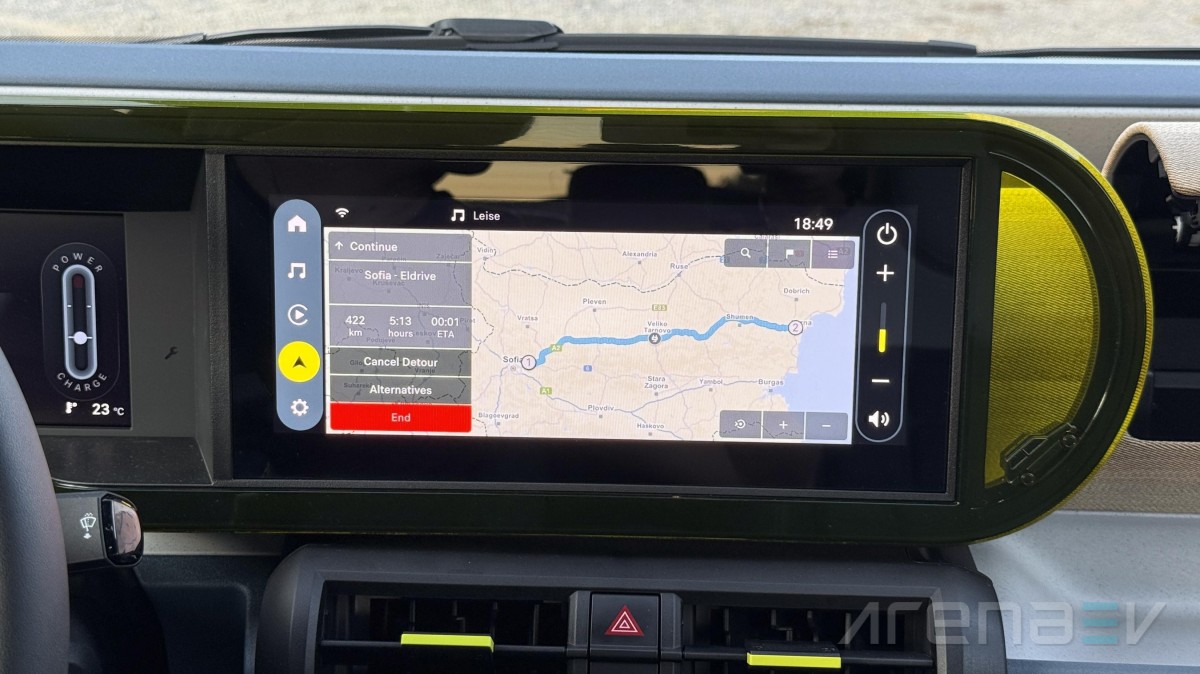
There is a settings menu, which offers almost no customization. You cannot change anything about the driving experience or interior features. The language and brightness are just about the only useful settings.
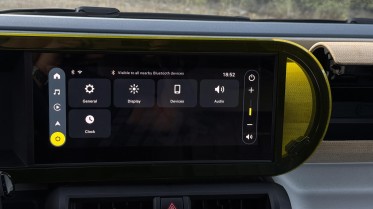
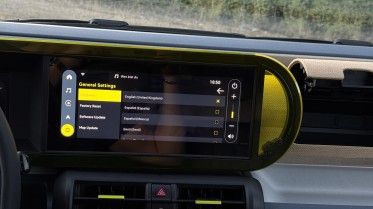
The settings menu offers almost no customization options.
There is no ambient lighting in the Fiat Grande Panda and that means the cabin remains dark at night. It is old-school and slightly depressing, but still reasonably cozy.
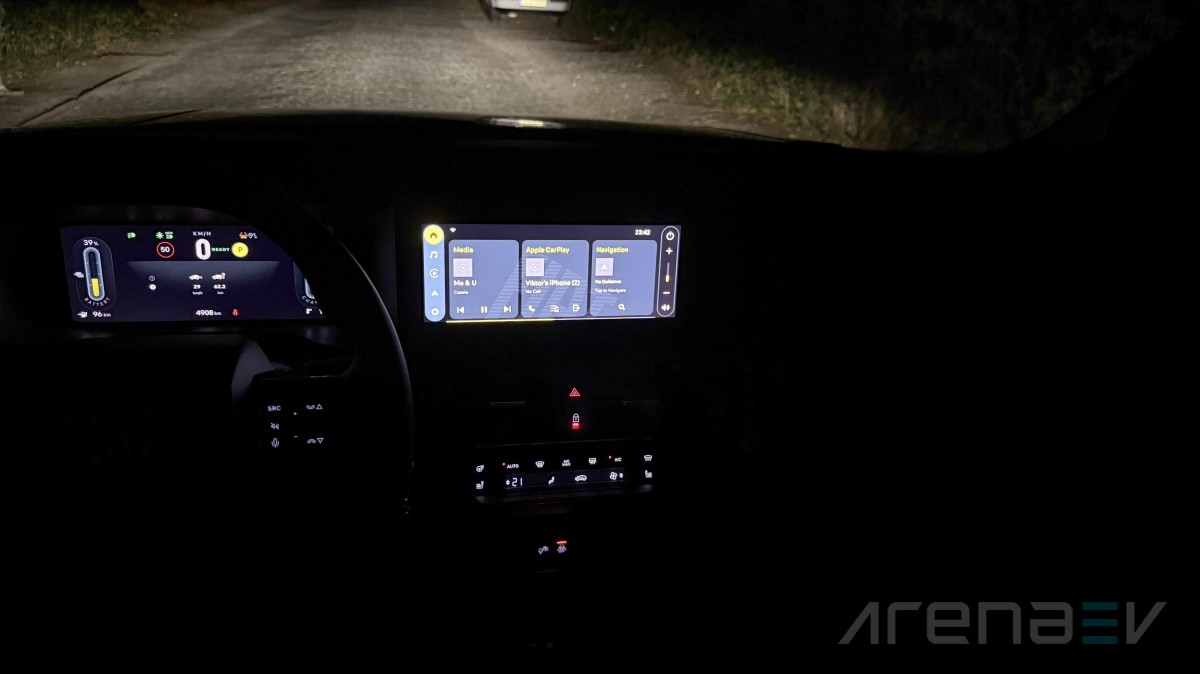
Cabin noise
Despite its boxy shape and poor aerodynamics, the cabin of the Fiat Grande Panda is quiet and relaxing. As speed increases you get some wind and tire noises, but there are no turbulent ones or such that might annoy you. The result fits right between the Hyundai Inster and Renault 5, which are the Panda’s close rivals.
Sound level tests are carried out with a specialized sound level meter placed in the car's cupholders. The test is conducted with air conditioning and radio off and while maintaining a steady speed.
Acceleration and braking
With only 113 hp and 90 lb-ft, the Fiat Grande Panda is far from a dragster. However, in the city it feels nimble and zippy. With a time of 10.7 seconds for the acceleration from 0 to 62 mphin our test it is a leisurely experience rather than a sprint. Still, that is 0.3 seconds quicker than what the manufacturer promises.
Good brakes are a must for urban conditions where unexpected events happen all the time. Stopping completely from 62 mph takes 35 m (114’10”), which is a respectable figure. Sadly, you don’t get full one-pedal driving so you have to press on the brake pedal when stopping completely but with normal driving you can just use the recuperation most of the time to travel around.
Acceleration and deceleration are measured with a RaceBox device inside the car. Testing is done with a single person inside the car, with air conditioning and traction control off.
Consumption
A big problem of the Fiat Grande Panda is that it has no consumption readout anywhere in the vehicle. Even though the system allows you to switch units from mi/kWh to kWh/100km, nowhere is this information displayed to the driver. This is a huge miss as we couldn’t complete our usual efficiency test routes and make a dedicated range test article. Therefore we cannot make a comparison between the Grande Panda and rivals and that is a real shame.

Our rough estimations are that the WLTP rate of 199 miles can be achieved only when driving extremely carefully at low speeds no rapid accelerations.
Charging speed
The Fiat Grande Panda charges with a maximum of 100 kW at a DC charger, which isn’t phenomenal but is also decent for a small car with a small battery. It takes 32 minutes to go from 20% to 80%, which is far from the best. However, such urban vehicles are primarily charged at home and if you have a type 2 7 kW charger it’ll take 3 h 42 min for 20% to 80% or 2 h 55 min at 11 kW, which are great values.
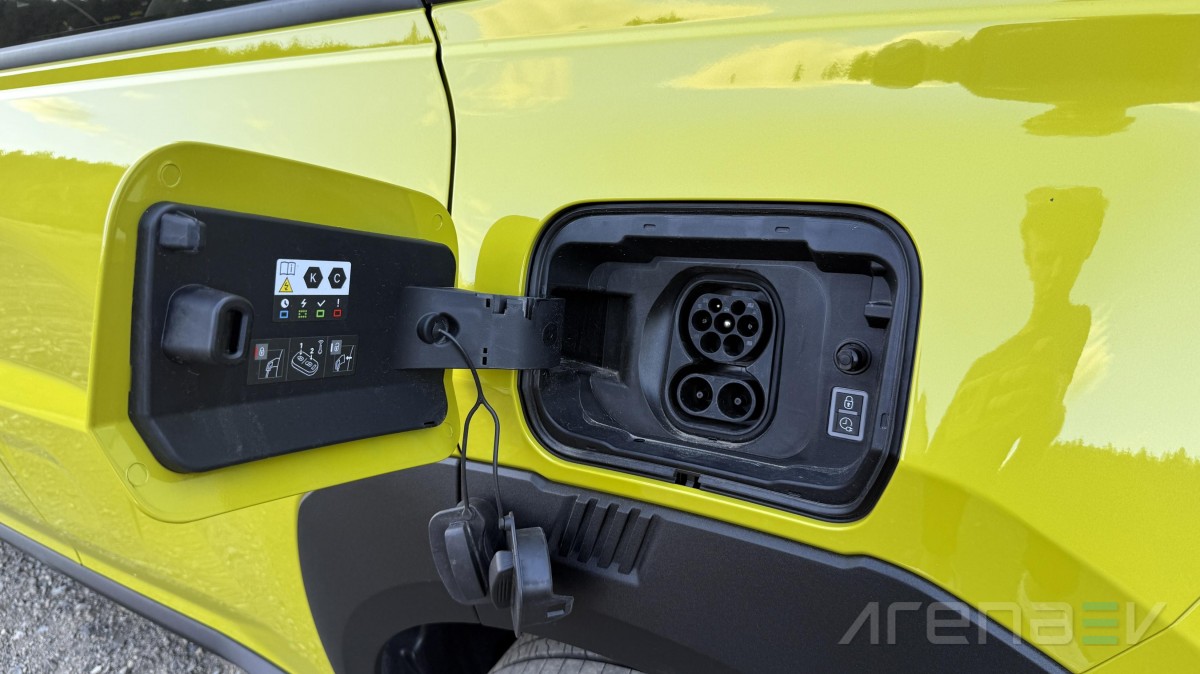
Competition
Recently manufacturers have taken up the task of electrifying the compact and subcompact market, which is especially popular in Europe and Asia. Therefore there's no shortage of competition for the Fiat Grande Panda BEV.
Its closest rival is the Citroen e-C3. Both vehicles are based on the same platform and are thus quite similar approaches to cheap electric mobility. The Citroen is more extravagant on the outside and blander on the inside. Storage space is significantly better in the Panda, but the Citroen is cheaper and offers more ground clearance.
The second rival we chose is the Hyundai Inster we recently reviewed. It is a brand new model that concentrates on maximum practicality and usability inside. The exterior of the Panda is more recognizable and the interior is fancier. The Inster is the wise choice, yet the Panda is the more emotional one.
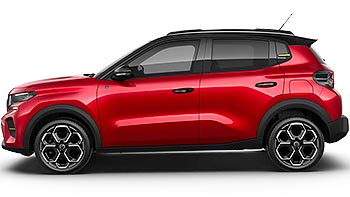
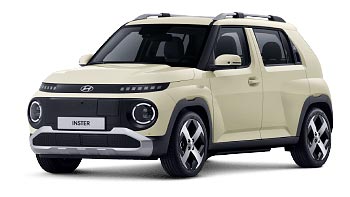
Citroen e-C3 44kWh 2023 - • Hyundai Inster Long Range 2024 -
Verdict
The Fiat Grande Panda BEV has all the right ingredients to continue the successful legacy of the model. It is small, cheap and practical, which is what people loved about the predecessors. The Grande Panda looks fun, yet remains focused on its main goal - transporting people cheaply and comfortably.

The exterior of the Fiat Panda is distinct and retro-futuristic, which seems to work well these days. The avantgarde styling manages to not disregard practicality and thanks to clever packaging, the buyer gets an honest final product.

Fiat did its job well with the creation of the electric Grande Panda and can be proud of the result. If you’re wondering about your next compact commuter, we highly suggest you test the Fiat Grande Panda BEV.
Pros
- Great nostalgic design.
- Multiple quirks to improve practicality.
- Comfortable seats.
- Built-in charging cable.
- Easy to disable driver aids.
- Transmission is set to recuperation by default.
- Simple to use and easy to operate.
- Small turning radius.
- Big trunk for the segment.
- Affordable pricing.
Cons
- Cheap materials even for the segment.
- Small battery and low range.
- No flat-folding rear seats.
- Unstable at high speeds.
- Heavy for the segment.
- No keyless entry and start.
- No consumption readout.
Reader comments
- Anonymous
- U@m
Excellent EV. Fiat should work on the listed cons and launch a improved variant in near future.
- Anonymous
- 8jS
Good review as always! It is sad that you couldn't compare the consumption figures, but this is no fault of yours! However I have one VERY BIG criticism about the way you are writing these reviews and it is about using the Imperial system! I get...
- Mohammed
- ZcG
Great car! Can't wait to drive it and compare to my old Panda. Will likely miss the 4x4 but those looks are worth it ughh
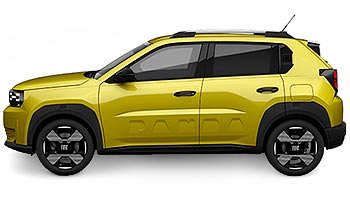
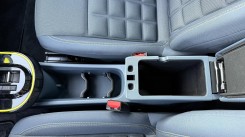




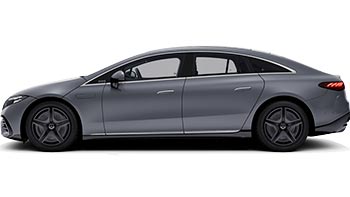
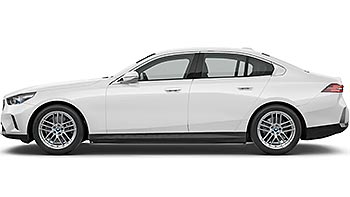
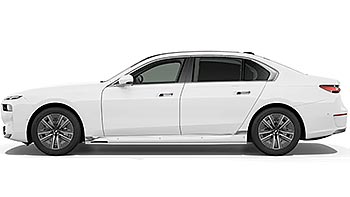
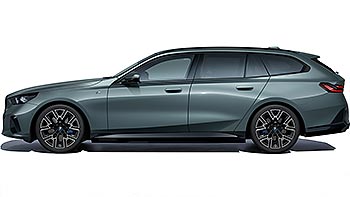
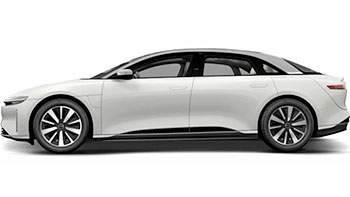

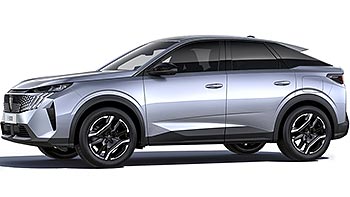
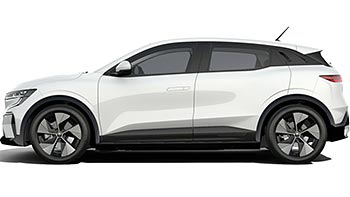

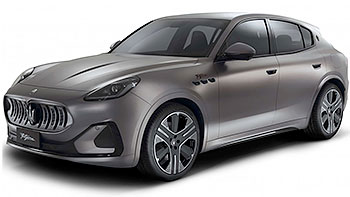
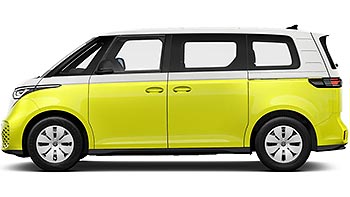
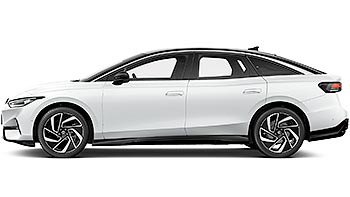
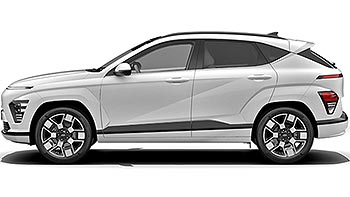
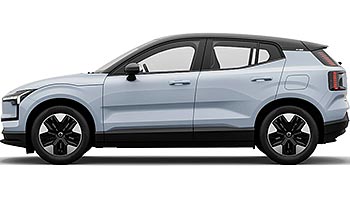
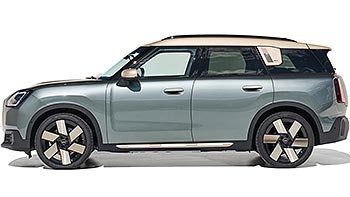
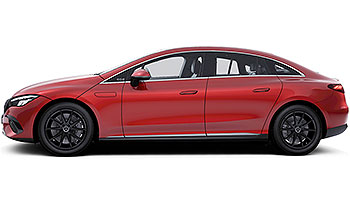
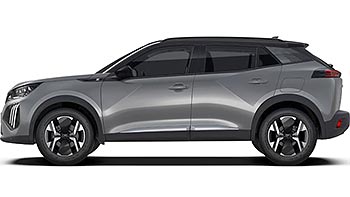
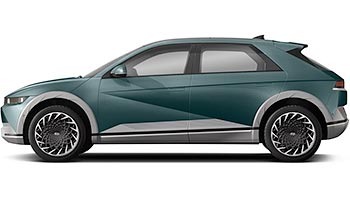
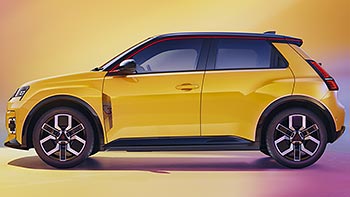
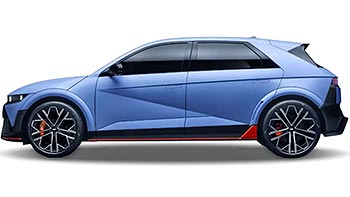
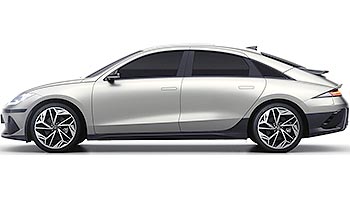
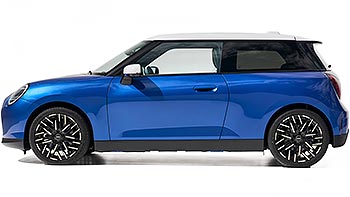
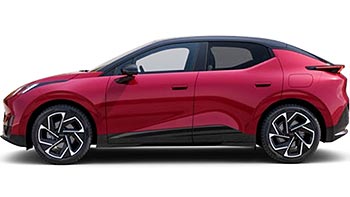
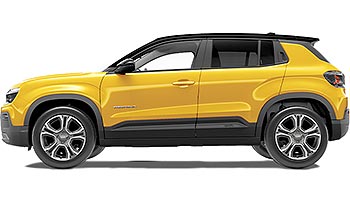
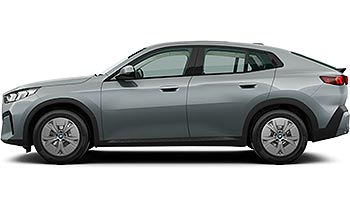
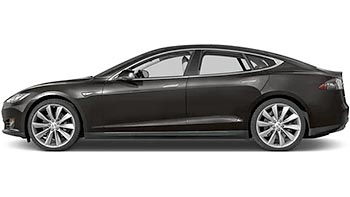
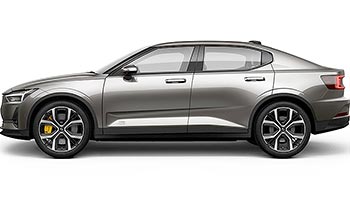
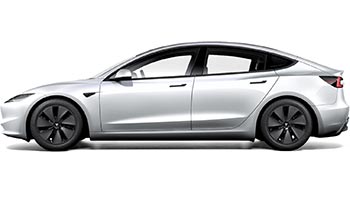
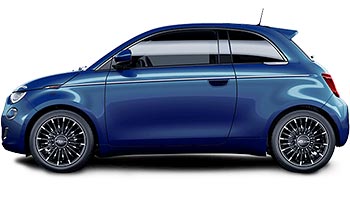
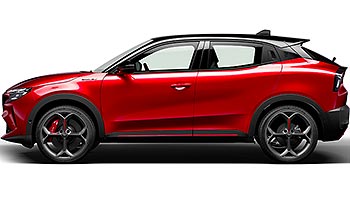








Facebook
Twitter
Instagram
RSS
Settings
Log in I forgot my password Sign up